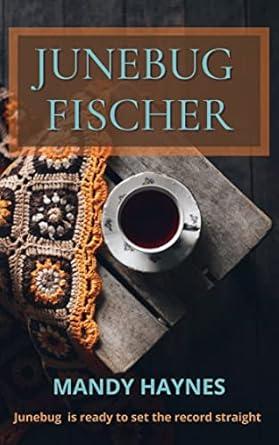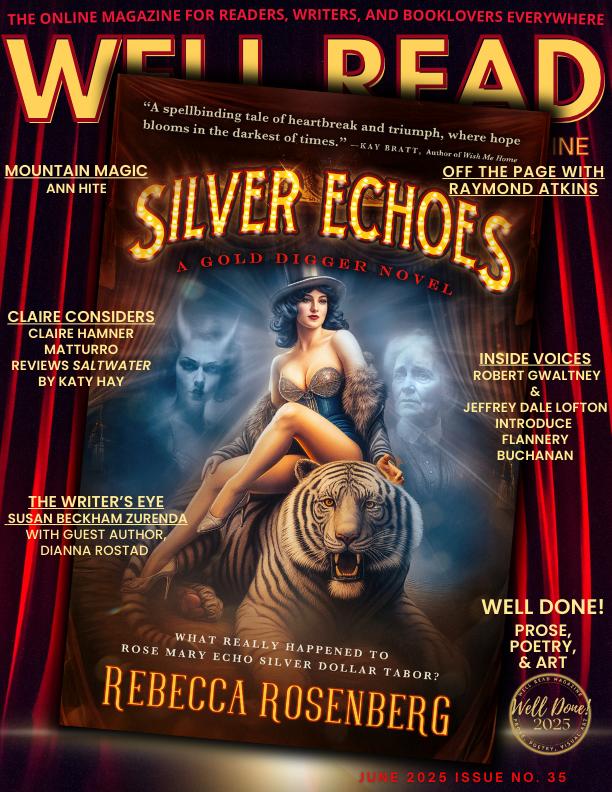

Silver Echoes:AHistorical Roaring Twenties
Novel (Gold Digger Biographical Fiction Book 2)
Rebecca Rosenberg
Publisher's Weekly BookLife Editor's Pick 2025
"A sparkling and fiercely tragic biofic of Baby Doe’s daughter, the dazzling Silver Dollar. Readers will hang on as desperately as Silver doing her Slide for Life act to see how her story unfolds." ~BookList
"Riches to ruin, a star's dangerous double life. Silver Dollar's fall births a vengeful alter ego. High-wire peril, mesmerizing tigers, ambition vs. madness. A dark, magical tale ignites a terrifying transformation.” ~Kirkus Review
A Spellbinding Saga of Ambition, Identity, and Redemption. Based on a true story.
Chicago, 1920s: Movie starlet Silver Dollar Tabor's glittering life shatters after a brutal attack awakens a hidden self. Plunging into the city's dangerous underworld of burlesque speakeasies, she blurs the lines between ambition and destruction, testing her love for screenwriter Carl. This JazzAge, Prohibition-era tale explores the dark side of fame and the fragility of identity.
Colorado, 1932: Haunted by Silver's disappearance, her mother, Baby Doe, fights to save their family's silver mine. A desperate search for her daughter unearths a shocking truth, rewriting their history. This dual timeline novel weaves a tale of resilience and the enduring bond between mother and daughter.
From the dazzling heights of the Flapper era to the rugged legacy of silver mining, Rebecca Rosenberg's "Silver Echoes" delivers a gripping historical fiction experience. Baby Doe Tabor's relentless quest for truth unearths the secrets of Silver Dollar Tabor. Perfect for fans of strong women in historical novels and stories based on real events. What really happened to Silver Dollar Tabor? And can her mother uncover the truth before it’s too late?
"Rosenberg’s prose is as sharp as small daggers, her images leap off the page. If the hectic pacing and amnesiac gaps are occasionally disorienting, they are also thrilling." ~BlueInk Review
"Entertaining, fast-paced, and deliciously immersive! A thrilling story of love, loss, and belonging. Highly recommend!" - Michelle Cox, author of The Fallen Woman's Daughter
Silver Echoes grips from page one, throwing you into the dangerous worlds of a determined mother and a daughter entangled with Chicago's underworld.Avivid and thrilling historical tale. ~Midwest Review
Author, champagne geek and lavender farmer
Rebecca Rosenberg is an author, champagne historian, speaker, wine and book event planner for Breathless Wines, and columnist for Sparkling Discoveries. She is also a speaker for the National Women's HistoryAlliance.
Rebecca’s awards and accolades include Editor’s Choice Historical Novel Society, Gold Medals from IBPA, IPPY, Coffee Pot, “A Tour de Force” Publisher’s Weekly, “10 out of 10” Writer’s Digest, Gold Coffee Pot Book ClubAward, and Book Authority Best Champagne Ebook ofAll Time.
Rebecca lives with her family at Rêve de Lavande (Lavender Dream) in Sonoma, CA, where they founded the country's largest lavender company. Her book Lavender Fields of America was released in a new edition in 2022.
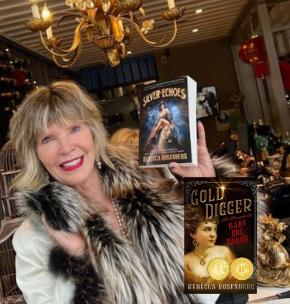

Did you miss last month’s issue? No worries, click here to find it as well as all the past issues.


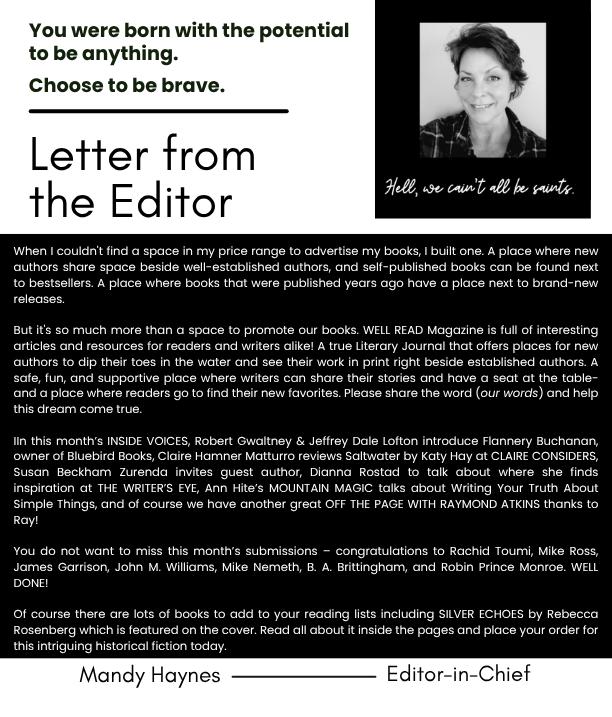





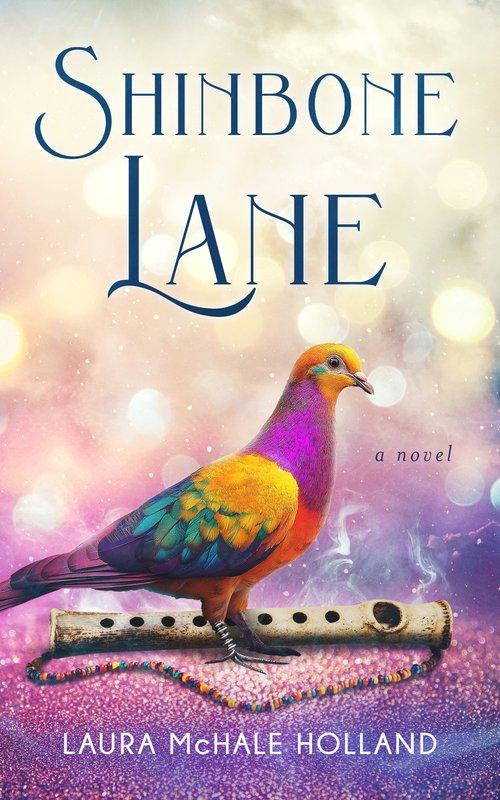
San Francisco, 1974. Sixteen-year-old runaway Maddy is escaping the blame for a crime she didn't commit. She finds refuge on Shinbone Lane among a spirited group of wanderers, artists, and dreamers. Taken in by elderly Clara and her neighbor Ted, she discovers a place where magic blends with reality — and secrets emerge to heal, haunt, and transform lives.
“Laura McHale Holland's delightful Shinbone Lane captures echoes of San Francisco's Summer of Love, with a few surprising twists. Set in a quirky corner of the city peopled by old friends, new friends and one very lonely –and rather chatty – magical pigeon, Holland's novel reminds us that despite kind intentions, utopias often mask a dark underbelly.”
RAYNE WOLFE,AUTHOR OF TOXIC MOM TOOLKITAND FORMER NEWYORK TIMES REGIONAL STAFF WRITER
Shinbone Lane Laura McHale Holland
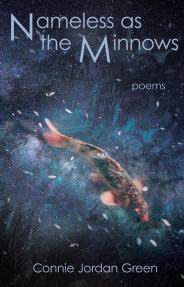
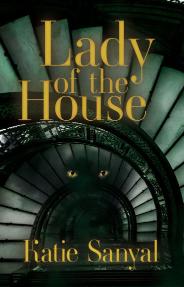
In Nameless as the Minnows, poems move through an early consideration of one’s yet unrealized self being washed toward a faceless future, into an exploration of growth and resilience through family and loss, and farther into the miracles of forming a new family and finding one’s true name among the wonders of the natural world, culminating in the spirit yet reaching toward the stars, the universe, still questioning the unknowable and praising “the small rituals of becoming and being.”
After inheriting her late grandmother’s property in the deep forests of Georgia, twenty-two-year-old Clara Graham is forced to return to the beautiful, magical house where she lived briefly during childhood. But as she finds herself submerged in the dark secrets her grandmother left behind, she must face her own terrifying childhood memories that have come crawling back into the light, demanding a reckoning.

The Ballads of Niam bridges the lives of people who have traversed great distances and times to be where they are. Niam has been burdened with a demanding task and a taxing quest. He has been tasked by his wife, Prisha, to find a name for their five-year-old daughter. He is also on a quest to get the hyena, Ajani, across Paris. These two great efforts involve negotiating a trench and a hill. They also span continents and countries and times. Fortunately for Niam, his palm has triple triplet lines and one single strong, prominent fate line. He also has unsolicited help navigating his path through non-existence. Fortunately, too, this day is long, and, in every version of his life, his company is strong. Maybe the burdens he carries are no match for him.

MADVILLE PUBLISHING seeks out and encourages literary writers with unique voices. We look for writers who express complex ideas in simple terms. We look for critical thinkers with a twang, a lilt, or a click in their voices. And patois! We love a good patois. We want to hear those regionalisms in our writers’ voices. We want to preserve the sound of our histories through our voices complete and honest, dialectal features and all. We want to highlight those features that make our cultures special in ways that do not focus on division, but rather shine an appreciative light on our diversity.
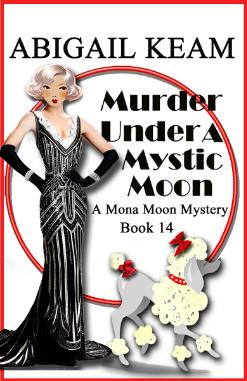
Murder UnderAMystic Moon:A1930s Mona Moon Historical Cozy
Mystery byAbigail Keam
High society lady sleuth Mona Moon and her husband, Robert Farley, Duke of Brynelleth, are on the last leg of their honeymoon. They are island hopping in the sunny Mediterranean Sea, sightseeing all the ancient archaeological ruins before returning home to Mooncrest Farm in Kentucky. They find it odd that they keep running into old friends and associates along their trip. A sixth sense is telling Mona that danger is slowly closing in, but she has no idea how it will manifest itself. Will Mona’s dream honeymoon turn into a nightmare?
Award-winning authorAbigail Keam writes the Mona Moon Mystery Series—a rags-to-riches 1930s mystery series which includes real people and events into the story line. The series is about a cartographer who is broke and counting her pennies when there is a knock at her door.Alawyer, representing her deceased uncle, announces Mona has inherited her uncle’s fortune and a horse farm in the Bluegrass. Mona can’t believe it. She is now one of the richest women in the country and in the middle of the Great Depression!
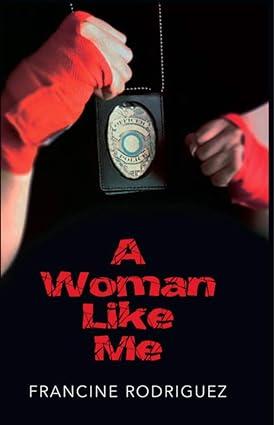
AWoman Like Me by Francine
Rodriguez
Inspired by real-life events, this is a gritty and dark crime thriller, telling of a warrior’s journey. The traveler on this journey is an of a one-of-a-kind disconcerting individual, a transgender, and biracial woman, who is isolated, lonely, and emotionally troubled, a stranger in her own body.
Her crimes of violence are at first, lifepreserving, and later become opportunistic as she fights the obstacles that fuel her fear of returning to childhood misery. Our warrior begins her journey in a notorious prison in the Philippines where she is locked up for murder at a young age, with the belief that she will not survive. She is noticed by the prison’s warden and selected to fight in the Muay Thai underground prison circuit, where prison and government officials conduct rigged fights for betting purposes.
When a promised journey outside of the Philippines allows her to leave the prison with her warden, she escapes to Bangkok, transitions sexes, and lives, and works in the district infamous for the tourist sex trade. Seeking to find her father, an ex-serviceman, she comes to the United States to begin her search. Here through misrepresentation, and overcoming countless obstacles, she becomes a police officer, and her new identity leaves her living her life in turmoil, struggling to find where she belongs in a field ruled by toxic masculinity, corruption, and cruelty. She attempts to exact justice for victimized children who have been cast aside by the system.
“Smart and sensual, atmospheric, you can feel the humidity of the Texas Gulf Coast, smell the smoke-filled boardrooms and musty motels, the exhaust belching forth from the refinery that lights up the night sky like a fairyland in James Garrison’s latest novel, What Seems True … a savvy tale full of grit and grime and passion, vivid characters, and a male narrator who will appeal to both men and women. You will find yourself rooting for Attorney Dan Esperson, even when you are cringing at some of his choices … I highly recommend it.”—Kathleen M. Rodgers, Winner of the 2020 MWSA Founder's Award and author of THE FLYING CUTTERBUCKS
WHAT SEEMS TRUE JAMES GARRISON

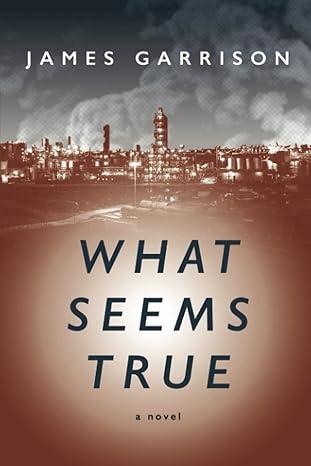
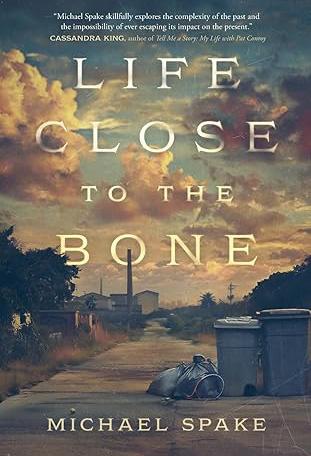
Life Close to the Bone
by Michael Spake
John Greenburn used to be somebody. Now, he's just a middle-aged guy, sitting behind his computer screen, waiting for his life to come to a screeching halt. Cognitive-Pharma, a Floridabased pharmaceutical company withdeeppocketsandasecretto hide, has caught the attention of the U.S. Department of Justice. The allegation? Medicare fraud. No one is more on the hook than John, who, as the Chief Ethics OfficeratCognitive-Pharma,has been the canary in the coal mine for the last 12 months. Not that his CEO cares much.
The CEO, a flashy, profit-driven type, certainly doesn't care that John's own mother, Francis, is in desperate need of CognitivePharma's top-selling drug to slow her memory loss. Haunted by what he knows of the fraud allegations - and the investigation's impact on the thousands of patients who depend on the medicationJohn draws closer to the memories he has of his own mother, Francis, and the ways she pushed him to be somebody.And, not just somebody, but the greatest youth tennis player upstate South
Carolina had ever known. With Francis' memory deteriorating, John's time to understand both himself and his mother, a product of the rough mill town that shaped her, is slipping away.
Life Close to the Bone moves from present day Florida and back in time to John's successful tenure on the youth tennis circuit and the textile mill in upstate South Carolina that, through Francis, shaped John's adolescence. It depicts a matriarchal family's relentless striving to overcome their "linthead" heritage and explores what it means to live for yourself and, ultimately, to forgive parents shaped by their own generational hardship.
Michael Spake is a healthcare attorney and writer. His debut novel, Life Close to the Bone, a coming-of-age story about the shift in memory that comes with moving from adolescence to adulthood, as the story’s protagonist learns about love and loss in a textile mill town located in upstate, South Carolina.
Michael and his wife Mary Lucia celebrated their 27th wedding anniversary. They have four children (22, 18, 18, and 13). Michael is from Anderson, South Carolina and graduated with honors from The Citadel with a BA (English) in 1994.
Michael currently lives in Lakeland, Florida. At home, when not writing, he gardens and raises chickens.
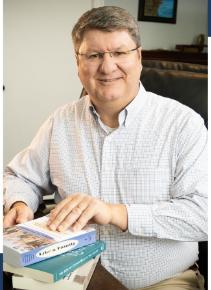
In Nameless as the Minnows, Connie Jordan Green’s throaty verse illuminates the grit and unflinching spirit of rural America, each carefully crafted line skillfully depicting the power of family and the pride and comfort that can be drawn from the people and places we call home.
—Kari Gunter-Seymour, Ohio Poet Laureate, author of Dirt Songs


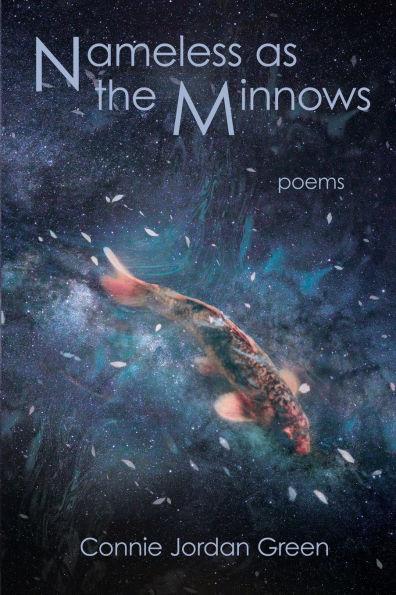

RUNNER-UP FOR THE 2023 ARTHUR SMITH POETRY PRIZE
Incidental pollen refers to pollen that collects on bees as they forage for nectar—like the cumulative life experiences we cannot help but carry.The hive serves as a thematic thread in this collection that explores the space between past and present, shame and redemption, grief and resilience. Poetic forms lend meaning—like the villanelle that captures the grief-driven magical thinking of the speaker.Are recurring red fox sightings visitations from her deceased father and nephew? Trauma and loss appear in these tonally rich and imagistic poems, but the arc ultimately centers on the search for belonging, the attempt to recreate home.

Flowers of the Heavens by Joyce Compton Brown explores the South and its history through the lens of her family. These poems recognize within this history the holiness of life and the nobility of the human spirit, while remaining conscious of the necessity of breaking up the South’s old and stubborn mores. The collection is an elegy to the past, an appreciation of present moments, and an acceptance of the finite in the flowing of time which carries us through Earth’s cycles and our own. Brown documents a life lived through awareness of those moments of wonder, large and small, a life lived in both sorrow and in joy

Drum the Double Sun—Algoems is a book of poems that provides a tour of surrealist portraits of the working-class through the barrooms, cafes, apartments, motels, and highways of SouthTexas and the Midwest. These “algoems” range from prophetic lyricism to absurdist poems of social and political protest, incorporating the symbols and metaphors of Aztec philosophy and western art. Through childhood to adulthood, Daniel Manuel Mendoza seeks to gain a closeness with the reader as he peers deep into the heart of what it means to be a Chicano poet in the 21st century.

MADVILLE PUBLISHING seeks out and encourages literary writers with unique voices. We look for writers who express complex ideas in simple terms. We look for critical thinkers with a twang, a lilt, or a click in their voices. And patois! We love a good patois. We want to hear those regionalisms in our writers’ voices. We want to preserve the sound of our histories through our voices complete and honest, dialectal features and all. We want to highlight those features that make our cultures special in ways that do not focus on division, but rather shine an appreciative light on our diversity.

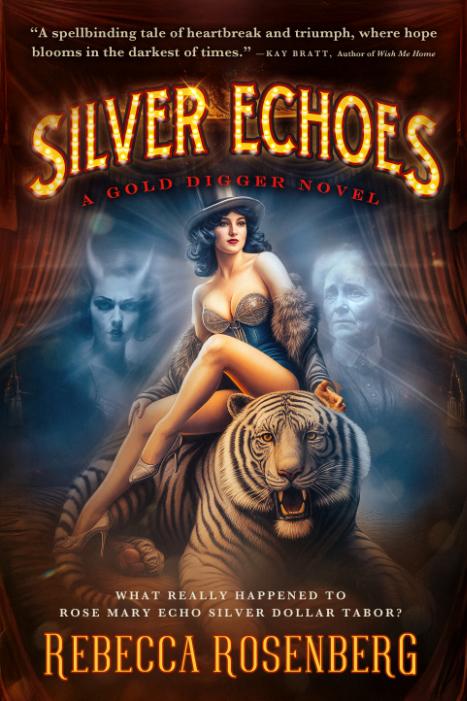
"Rosenberg's lyrical prose captivates, and her meticulous research crafts a nearly flawless reimagining, spinning a convincing tale of Silver's legendary beauty amid her intense clashes with a frenzied inner energy. A dazzling reimagining of Silver Dollar Tabor's tumultuous life."
— Editor's Pick BookLife reviews SilverEchoes: AHistoricalRoaringTwentiesNovel (GoldDiggerBiographicalFictionBook2) RebeccaRosenberg
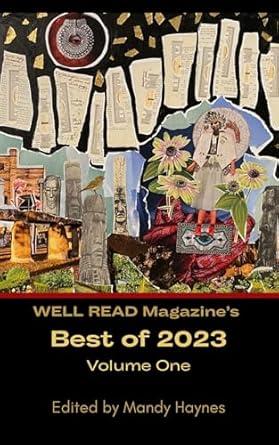
In Volume One, you’ll find thirty-eight submissions written by a fantastic mix of awardwinning authors and poets plus new ones to the scene. Three submissions in this volume were nominated for a Pushcart Prize: Miller’s Cafe by Mike Hilbig, Sleeping on Paul’s Mattress by Brenda Sutton Rose, and A Hard Dog by Will Maguire. The cover art is by artist, Lindsay Carraway, who had several pieces published in February’s issue.
Contributors: Jeffrey Dale Lofton, Phyllis Gobbell, Brenda Sutton Rose, T. K. Thorne, Claire Hamner Matturro, Penny Koepsel, Mike Hilbig, Jon Sokol, Rita Welty Bourke, Suzanne Kamata, Annie McDonnell, Will Maguire, Joy Ross Davis, Robb Grindstaff, Tom Shachtman, Micah Ward, Mike Turner, James D. Brewer, Eileen Coe, Susan Cornford, Ana Doina, J. B. Hogan, Carrie Welch, Ashley Holloway, Rebecca Klassen, Robin Prince Monroe, Ellen Notbohm, Scott Thomas Outlar, Fiorella Ruas, Jonathan Pett, DeLane Phillips, Larry F. Sommers, Macy Spevacek, and Richard Stimac
InVolumeTwo, you’ll find fortythree submissions written by a fantastic mix of award-winning authors and poets plus new ones to the scene. Three submissions in this volume were nominated for a Pushcart Prize: A Bleeding Heart by Ann Hite, A Few Hours in the Life of a Five-Year-Old Pool Player by Francine Rodriguez, and There Were Red Flags by Mike Turner. The cover art for Volume Two is by artist, DeWitt Lobrano, who had several pieces published in November’s issue. Enjoy!
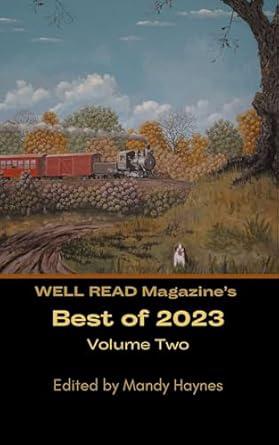
Contributors: Ann Hite, Malcolm Glass, Dawn Major, John M. Williams, Mandy Haynes, Francine Rodriguez, Mike Turner, Mickey Dubrow, William Walsh, Robb Grindstaff, Deborah Zenha Adams, Mark Braught, B. A. Brittingham, Ramey Channell, Eileen Coe, Marion Cohen, Lorraine Cregar, John Grey, J. B. Hogan, Yana Kane, Philip Kobylarz, Diane Lefer, Will Maguire, David Malone, Ashley Tunnell, Tania Nyman, Jacob Parker, LaVern Spencer McCarthy, K. G. Munro, Angela Patera, Micheal Spake, George Pallas, Marisa Keller, Ken Gosse, and Orlando DeVito
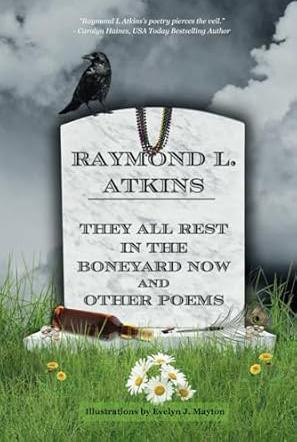
TheyAll Rest in the Boneyard Now by
Raymond L.Atkins (Author), Evelyn Mayton (Illustrator)
“Raymond Atkins writes with intuitive wisdom, as he channels those from beyond the grave. His poetry gives voice to those who once mattered, those who time wants us to forget. In They All Rest in the Boneyard Now, Atkins wrestles death from the dusty clay and breathes life into dry bones while reminding us that every soul who once had breath is worthy of being remembered. These saints, sinners, socialites, and the socially inept are all victims of time, or circumstance, as we too shall one day be. Atkins offers salvation to all who are tormented, and solace to those who seek eternal rest.”
– Renea Winchester,Award-winning author of Outbound Train
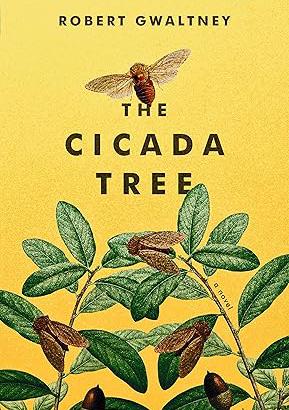
The Cicada Tree by
Robert Gwaltney
The summer of 1956, a brood of cicadas descends upon Providence, Georgia, a natural event with supernatural repercussions, unhinging the life of Analeise Newell, an eleven-year-old piano prodigy. Amidst this emergence, dark obsessions are stirred, uncanny gifts provoked, and secrets unearthed.
During a visit to Mistletoe, a plantation owned by the wealthy Mayfield family,Analeise encounters Cordelia Mayfield and her daughter Marlissa, both of whom possess an otherworldly beauty, a lineal trait regarded as that Mayfield Shine.Awhisper and an act of violence perpetrated during this visit by Mrs. Mayfield all converge to kindle Analeise’s fascination with the Mayfields.
Analeise’s burgeoning obsession with the Mayfield family overshadows her own seemingly, ordinary life, culminating in dangerous games and manipulation, setting off a chain of cataclysmic events with life-altering consequences—all of it unfolding to the maddening whir of a cicada song.
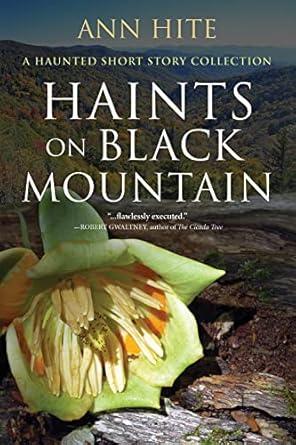
Haints on Black Mountain:AHaunted Short Story Collection by Ann Hite
Ann Hite takes her readers back to Black Mountain with this haunted short story collection.
An array of new characters on the mountain experience ghostly encounters. The collection took inspiration from her beloved readers, who provided writing prompts. Wrinkle in the Air features Black Mountain's Polly Murphy, a young Cherokee woman, who sees her future in the well's water. Readers encounter relatives of Polly Murphy as the stories move through time.The Root Cellar introduces Polly's great grandson, who tends to be a little too frugal with his money until a tornado and Polly's spirit pays the mountain a visit. In The Beginning, the Middle, and the End, readers meet Gifted Lark on an excessively frigid January day. This story moves back and forth between 1942 and 1986 telling Gifted and her grandmother Anna's story. This telling introduces spirits that intervene in the spookiest of ways.
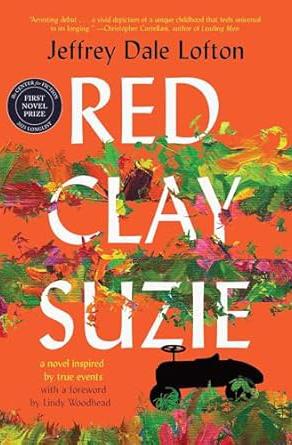
Red Clay Suzie by
Jeffrey Dale Lofton
Anovel inspired by true events. The coming-of-age story of Philbet, gay and living with a disability, battles bullying, ignorance, and disdain as he makes his way in life as an outsider in the Deep South—before finding acceptance in unlikely places.
Fueled by tomato sandwiches and green milkshakes, and obsessed with cars, Philbet struggles with life and love as a gay boy in rural Georgia. He’s happiest when helping Grandaddy dig potatoes from the vegetable garden that connects their houses. But Philbet’s world is shattered and his resilience shaken by events that crush his innocence and sense of security; expose his misshapen chest skillfully hidden behind shirts Mama makes at home; and convince him that he’s not fit to be loved by Knox, the older boy he idolizes to distraction. Over time, Philbet finds refuge in unexpected places and inner strength in unexpected ways, leading to a resolution from beyond the grave.
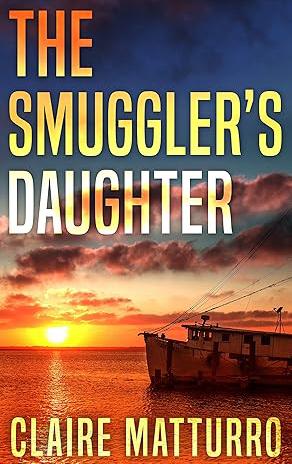
The Smuggler's Daughter by
Claire Matturro
Ray Slaverson, a world-weary Florida police detective, has his hands full with the murders of two attorneys and a third suspicious death, all within twenty-four hours. Ray doesn’t believe in coincidences, but he can’t find a single link between the dead men, and he and his partner soon smash into an investigative stonewall.
Kate Garcia, Ray’s fiancée, knows more than she should. She helped one of the dead attorneys, just hours before he took a bullet to the head, study an old newspaper in the library where she works. Kate might be the only person still alive who knows what he was digging up— except for his killer.
When Kate starts trying to discover what’s behind the murders, she turns up disturbing links between the three dead men that track back to her family’s troubled past. But she has plenty of reasons to keep her mouth shut. Her discovery unleashes a cat-and-mouse game that threatens to sink her and those she loves in a high tide of danger.
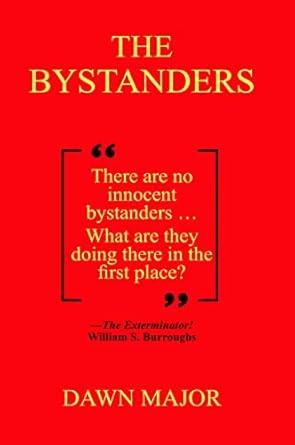
The Bystanders by Dawn Major
The quaint town of Lawrenceton, Missouri isn’t sending out the welcoming committee for its newest neighbors from Los Angeles—the Samples’ family. Shannon Lamb’s “Like a Virgin” fashion choices, along with her fortune-telling mother, Wendy Samples, and her no-good, cheating, jobless, stepfather, Dale Samples, result in Shannon finding few fans in L-Town where proud family lines run deep. Only townie, Eddy Bauman, is smitten with Shannon and her Valley Girl ways. The Bystanders is a dark coming-of-age story set in the 1980s when big hair was big, and MTV ruled. In a quiet town of annual picnics and landscapes, the Samples’ rundown trailer and odd behaviors aren’t charming the locals. Shannon and Wendy could really use some friends but must learn to rely upon themselves to claw their way out of poverty and abuse if they want to escape Dale.
The Bystanders pays homage toAmericana, its small-town eccentricities, and the rural people of the Northern Mississippi Delta region of Southeast Missouri, a unique area of the country where people still speak Paw Paw French and honor Old World traditions.
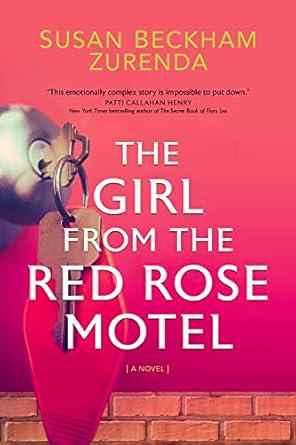
The Girl from the Red Rose Motel:ANovel by Susan Beckham Zurenda
Impoverished high school junior Hazel Smalls and privileged senior Sterling Lovell would never ordinarily meet. But when both are punished with in-school suspension, Sterling finds himself drawn to the gorgeous, studious girl seated nearby, and an unlikely relationship begins. Set in 2012 South Carolina, the novel interlaces the stories of Hazel, living with her homeless family in the rundown Red Rose Motel; Sterling, yearning to break free from his wealthy parents' expectations; and recently widowed Angela Wilmore, their stern but compassionate English teacher. Hazel hides her homelessness from Sterling until he discovers her cleaning the motel's office when he goes with his slumlord father to unfreeze the motel's pipes one morning. With her secret revealed, their relationship deepens. Angela-who has her own struggles in a budding romance with the divorced principal-offers Hazel the support her family can't provide. Navigating between privilege and poverty, vulnerability and strength, all three must confront what they need from themselves and each other as Hazel gains the courage to oppose boundaries and make a bold, life-changing decision at novel's end.
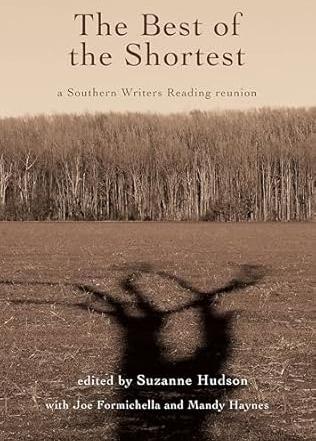
The Best of the Shortest: A
Southern Writers Reading Reunion by
Suzanne Hudson (Author, Editor), Mandy Haynes (Editor), Joe Formichella (Author, Editor)
“Some of the happiest moments of my writing life have been spent in the company of writers whose work is included in these pages. They all brought their A-game to this fabulous collection, and at our house it is going on a shelf next to its honored predecessors. The only thing that saddens me is that the large-hearted William Gay is not around to absorb some of the love that shines through every word.” ―Steve Yarbrough
“The Best of the Shortest takes the reader on a fast-paced adventure from familiar back roads to the jungles of Viet Nam; from muddy southern creek banks to the other side of the world, touching on themes as beautiful as love and as harsh as racism. However dark or uplifting, you are guaranteed to enjoy the ride.” --Bob Zellner
“I had some of the best times of my life meeting, drinking and chatting with the writers in this book, times matched only by the hours I spent reading their books. This collection showcases a slice of Southern literature in all its complicated, glorious genius. Anyone who likes good writing will love it.” --Clay Risen
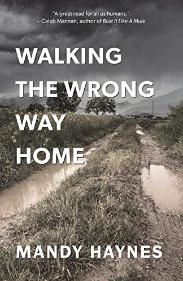
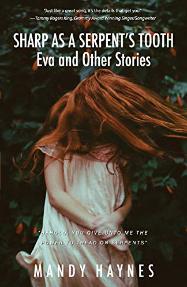
Walking The Wrong Way Home by Mandy Haynes
Spanning nearly twenty decades, the struggles and victories these characters face are timeless as they all work towards the same goal.
A place to feel safe, a place to call home.
Sharp as a Serpent's Tooth: Eva and other stories by Mandy Haynes
Each story features a female protagonist, ranging from ten to ninety-five years of age. Set in the south, you’ll follow these young women and girls as they learn that they’re stronger than they ever thought possible.
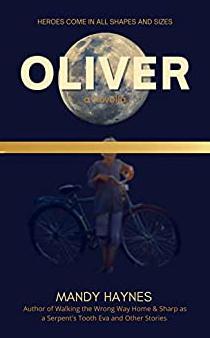
Oliver by Mandy Haynes
“Dear God…and Jesus and Mary…” Even though eleven-year old Olivia is raised Southern Baptist, she likes to cover her bases when asking for a favor. Unlike her brother Oliver, she struggles with keeping her temper in check and staying out of trouble. But Oliver is different, and in the summer of ’72 he proves to Olivia there’s magic in everything - it’s up to us to see it.
Mandy Haynes spent hours on barstools and riding in vans listening to great stories from some of the best songwriters and storytellers in Nashville, Tennessee. After her son graduated college, she traded a stressful life as a pediatric cardiac sonographer for a happy one and moved to an island off the east coast. She is a contributing writer for Amelia Islander Magazine, Amelia Weddings, and editor of Encounters with Nature, an anthology created by Amelia Island writers and artists. She is also the author of two short story collections, Walking the Wrong Way Home, Sharp as a Serpent's Tooth Eva and Other Stories, and a novella, Oliver. She is a co-editor of the Southern Writers Reading reunion anthology, The Best of the Shortest. Mandy is the editor-in-chief of WELL READ Magazine and the editor of four WELL READ anthologies.
Like the characters in some of her stories, she never misses a chance to jump in a creek to catch crawdads, stand up for the underdog, or the opportunity to make someone laugh. At the end of 2024, Mandy moved back to middle Tennessee and now spends her time writing and enjoying life as much as she can.
If you’d like to feature your work in the reading recommendation section with live links to your website and purchase link, and personalized graphics of your ad shared to WELLREAD Magazine’s social sites, click here to see examples of the different options and moreinformation.
Click here for more information on purchasing a cover.
Don’t let the low prices fool you - WELL READ was created by an author who understands how much it costs to get your book in the best shape possible before it’s ready to be queried by agents, small presses, or self-published. Showing off your book and getting it in front of readers shouldn’t break the bank.
WELL READ Magazine receives approximately 8,000 views each month on Issuu’s site alone (the world’s largest digital publishing and discovery platform available). Your book will be included with the featured authors, great interviews, submissions, essays, and other fantastic books inside each issue. There is strength in numbers. Let’s get our books seen!
Ad rates for 2025:
$50 - One FULL PAGE AD
$75 - TWO-PAGE SPREAD
$100 - TWO HIGH IMPACT - FULL COLOR PAGES - (this is NOT a standard two page spread)
$100 - TWO-PAGE SPREAD to advertise up to THREE books with one live link to your website. For publishers only.
$75 BOOKSTORES, PUBLICISTS, AUTHORS - two-page spread to promote book events
$550 FRONT COVER - includes TWO full color interior pages for book description, author bio, and/or blurbs.
$350 INTERIOR COVER or BACK COVER - includes TWO additional full color interior pages for book description, author bio, and/or blurbs.
*All covers include a one page ad in the next three consecutive issues following the month your book is featured on a cover.
Prices include creating the graphics for the magazine pages and all social sites. Everything is taken care of for you.

INSIDE VOICES
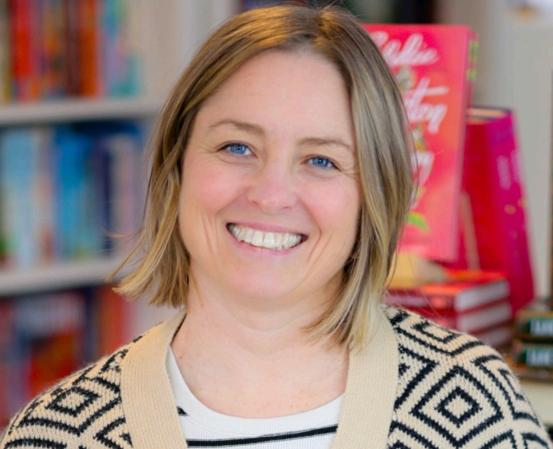
“…I operate under the notion that there are dreams for me out there that I don’t even know exist.”
Robert
Gwaltney and Jeffrey Dale Lofton
introduce Flannery Buchanan, Owner of Bluebird Books
Robert Gwaltney & Jeffrey Dale Lofton introduce Flannery Buchanan, owner of Bluebird Books
Flannery Buchanan moved to Crozet with her family in 2018 from the Chicago area. She was trained and worked briefly as a school librarian until she began having children and then she stayed home for 15 years raising her four kids. When Flannery was ready to go back to work, she opened Bluebird Bookstop out of a vintage trailer and took it around to vineyards, festivals, coffee shops, anywhere that had people gathering. It was a way for her to test the market without too much overhead. Eventually it became clear that Crozet would support a brick and mortar so Flannery partnered with her friend Chelsea, who had a background in apparel and they opened Bluebird & Company.
Inside Voices (Jeffrey): Tell us about Crozet, VA. Channel the Board of Tourism and entice us there!
Flannery: Crozet is this sweet little town about 20 minutes west of Charlottesville and UVA. We are surrounded by the Blue Ridge Mountains, vineyards, hiking trails, orchards and so much natural beauty. Because of our proximity to UVA, we have a lot of UVA employees and alumni that make their homes here. We also have residents who have come down from larger cities because they want a change of pace or they like being outdoors. The actual town of Crozet is sleepy with a local hardware store and pharmacy and
Robert Gwaltney & Jeffrey Dale Lofton introduce Flannery Buchanan
a train that comes through every day around 3PM.
Inside Voices (Robert): How did Bluebird come to be . . . its origins? It’s more than a bookstore, yes?
Flannery: Bluebird is absolutely so much more.When I was living in San Diego in my twenties, I was working an admin job and doing a terrible job at it. I went through a pretty dark time trying to figure out what I was doing with my life and I had this wonderful therapist who saw me through it—Arlene. I will never forget her. On my last day of therapy, as I was saying goodbye before moving to Syracuse for Library School, she gave me this glass bluebird figurine and told me to just keep seeking joy. I’ve carried that little bluebird with me for 20+ years and never forgotten her words. The business, for me, has been a reflection of that. Finding joy is so often a difficult task, so we aim to provide a space where our clients and customers can be themselves in whatever way that looks like. We like to call ourselves the Cheers of retail, when you come in everybody knows your name.
Inside Voices (Jeffrey): Beyond obtaining business licenses and acquiring retail space, what does putting an indie bookstore on its feet entail?
Flannery: Curating is the hardest part, I would say. We are space constrained, a very small shop. So thinking about what you want to
carry, where you want to put your focus down to how many copies, when to restock. We carry mostly new and notable or titles/authors that our staff feel passionately about.We also focus on local authors with whom we have relationships. I personally love to hand-sell debuts or titles that have flown under the radar. The way we approach bookselling is this: if there's a big title that you know you want, you’re going to order it from Amazon or Barnes & Noble. You come to us for recommendations of GOOD books that perhaps you’ve not heard about already.
Inside Voices (Robert): What do you know now that you wish you had known when you opened Bluebird?
Flannery: The absolute hardest part is managing people—I had never managed people before. There is so much I’ve learned along the way about managing people, hiring people, assessing our needs vs. the talents of our staff. We’ve made so many mistakes, things I regret but every time I learn from the mistakes.And I’ve absolutely grown as a person and been better for it. So what I wish most of all is that I could tell my newbie self, you’re going to make mistakes with people and you’re going to feel badly about it but you’re going to be better for it and it’s going to be okay.
Inside Voices (Jeffrey): Given the attack on books and the freedom to read whatever one wants, have you had moments of regret, bursts of pride about opening a woman-owned, independent
Robert Gwaltney & Jeffrey Dale Lofton introduce Flannery Buchanan
bookshop?
Flannery: YES. I will never forget a few years ago we were offered the launch for TJ Klune’s In the Lives of Puppets. I had hand sold The House in the Cerulean Sea to SO many people and I remember telling his publicist that I could guarantee 40-60 people.We ended up selling close to 300 tickets and had to take the event offsite. The news was hard that week, especially as a parent to queer kiddos, and before I had a chance to really wallow in it, I reminded myself: you’re doing what you can in your little corner of the world. To have gathered SO many people for an openly queer author with a book that embraced queer characters was a moment that I will never, ever forget.
Inside Voices (Robert): Book stores are crucial partners that authors rely on to promote their work, and you've given many writers a place to do that and meet the public. How do you decide which authors to invite into Bluebird?What advice do you have for authors who want, but are unsure how, to pitch themselves for a slot on your book event calendar?
Flannery: We are such a small shop and relatively new so I don’t have a goal of getting on just any book tours. Not now anyway. I stress too much about getting people to show up! So most of the events we do are with authors that we feel passionately about. That passion we feel spills over to our ability to hand-sell and create fans out of our customers. So it's an easy way to kind of guarantee people will show up! I also love to connect with authors on a
personal level because so often that enriches their work for me and makes it so easy to handsell their book. Case in point, I met you, Jeffrey, at the VAFestival of the Book and I was so taken with you that I read your book and adored it. And I’ve sold it to so many people as a result!
My advice to authors who want to land on our schedule would be to reach out and say hi!
Inside Voices (Jeffrey): You embarked on a bold project last year. Tell us about the Crozet Book Festival.
Flannery: The Crozet Book Fest was born of trying to reduce my stress over books events! As I said before I really do stress about the marketing and getting people to events because I NEVER want to waste an author's time. So we thought, wow, there are so many releases in summer and fall for some of our favorite authors, what if we condense them all into a one day festival?
It was one day with events located at various small businesses around Crozet. The idea was you park once and spend the day in Crozet listening to fabulous authors and patronizing our local businesses. We had panels called So You Want to Be A Writer? Building Empathy through Fiction, Planning the Perfect Murder and more! It turned out to be a huge success and now we’re actively planning the 2025 festival!
Robert Gwaltney & Jeffrey Dale Lofton introduce Flannery Buchanan
Inside
Voices (Robert): What’s next for you?
Flannery: I am a fly by the seat of my pants kind of person. I operate under the notion that there are dreams for me out there that I don’t even know exist. One day I meet someone or read something and all of the sudden, a dream is born. That said, I do have dreams one day of writing my story and all the good and the bad. I don’t need anybody to ever read it - I just want to know I did it.
As for the business, Crozet Book Fest is Saturday October 25, 2025. It’s going to be a good one!!





Click above to go to the BETWEEN THE PAGES YouTube channel, or on one of the links below to listen to the podcast. Please take a second to like and subscribe if you enjoy the channel - we appreciate you!





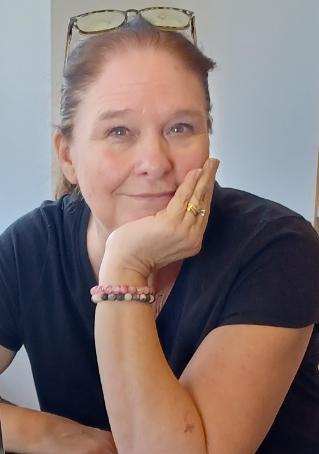
Writing Your TruthAbout Simple Things
Do you believe in magic? I never gave it much thought until I wrote my memoir, Roll The Stone Away. Taking on writing one’s story, dips the author deep into memoires that were forgotten, or so it wasforme.Mineweresostuffedaway,Iquestionedeachoneasthey surfaced. Writing this book was unlike any project I had ever undertaken. I fought telling my truths anywhere except in fiction which was my secret place—so secret I didn’t know I was using fiction this way. In a novel, I expressed repressed emotions without understanding they belonged to me.
When my first book, Ghost On Black Mountain, came out, I went to speak to a book club. As authors we need to listen closely to comments readers make. Sometimes there lies a depth of wisdom that can only benefit us. A woman attending the book club meeting madeacommentthathasremainedwithmegoingonfourteenyears.
“The ghosts in this book are metaphors for the emotions running through the story.”
Wow. This stopped me. As tempting as it was to look “smart” by saying “Thank you. That is what I intended.” I didn’t do that. I couldn’t do that. Instead I thanked her for the insight, explained I might never have seen this about the work.
When we sit down at the page, we don’t always know where we will end up. I never do. Memoirs have an outline of sorts. It’s called one’s life. But where do we start? What really matters? Because my story was full of trauma and grief, I was warned by a wise teacher/author, Jessica Handler, to take the writing slow. I’ve never been a good listener when it comes to directions. I plowed ahead and wrote 13,000 words in one week. Then, I promptly became sick and was in bed for days. Something I never did or do now. Choosing to write my truth knocked me for a loop, as Granny would say. I know she was shaking her head up there in Heaven.
This episode helped me see I had to come at the project in a new way. I decided to take a very slow approach. Mountain magic guided me. The least of my worries was writing in chronological order. I went with the images that came to me in dreams or my thoughts. Sometimes it was an old photo of Granny or Mother or both that sat on my desk during the writing process to inspire me.
The image of the window at the head of my bed, where I spent many nights as a child gazing at the sky, turned into my first stab at slowing down. Here is the result from Roll The Stone Away.
“The white twin sheet stuck to my skinny nine-year-old body as I lay on my back and pushed my head against the screen of the open window at the head of the bed. The steamy Georgia night air sat heavy in the trees.Almost visible. The stars winked in the vast, inky sky. Heat bugs hummed and chirped a song, a beat in my imagination. A magic carpet, on the horizon, out of sight, flew my way so I could escape this house, escape this life. Go while you
can. Leave when the chance comes.”
The view of the night sky through the giant oak on that hot night brought my writing to life. I was able to tell the story of Mother taking her pills, of my desperate need to escape that life.
The memories stored from long ago in our minds are our conjured spells. They give us permission to tell our stories that molded us into who we became. When I finished writing Roll The Stone Away, I was gutted. I was sure I would never write another book. One night I dreamed of my second great grandmother, whom I found while researching the memoir and who was full-blooded Cherokee. In the dream was a fictional story waiting for me to write, a story she wanted to tell. The next morning, I went straight to my desk and wrote a short story about Polly Murphy. Before the year was finished, I had written a whole collection entitled, Haints On Black Mountain: A Haunted Short Story Collection. Polly was featured as the matriarch that linked the stories of the collection together. The book went on to win several awards.
Many writers talk about having a muse that connects them to inspiration and talent that spins words into gold. My muse is mountain magic that Granny passed on to me when I was a young girl, struggling with turmoil at home. She gave me a magical storytelling gene.
What’s your truth?What’s your mountain magic? I promise both are right inside of you waiting to come forth. Get to the desk and create!



Stagnation
Rachid Toumi
The sun was blazing outside. The marine gusts coming across the Canary Islands and up the sloping hill squeezed through the ajar pigeon hole-like window and cooled our faces and feet as we sat silent on sheepskin in the room that was shaped like a piece of triangular cheese and that faced the big blue sea. We got ourselves comfortably seated opposite each other to avoid the nakedness of being watched from behind: My father was formed in the military, Chapar, my childhood pal, came from the underworld of La Gare. I mirrored their behavior because I came to realize—too late—that their self-preservation exceeded what little love had remained in their hardened hearts. I leaned back against the peeling blue-andwhite painted wall, the aroma of the seaweed-smelling breeze feeling sweet in my nostrils and cast one last look at my alter egos. This would not be my last summer in this savage Saharan strip of the Atlantic but I knew that that time was fast approaching and I had to begin with the writing. It seemed that the pleasantly drowse-inducing effect of the
oceanic breeze was not enough a tranquilizer for my old man who now stealthily and swiftly swallowed two pills of Xanax, lay quietly down, and slowly closed his eyes. In a minute or so, he crossed the border and the Giardia Fronteriza at the north-western part of Ifni shot at him. When they discovered he was only a child, they ceased shooting, as he disappeared among the Argan trees. It was sunset and he lay against the slanting broad trunk of the biggest spinosa in the center of the wood and slept, exhausted from walking the whole day on an empty stomach, tracking down his cow.
At dawn, he heard its faint mooing. He sprang to his feet and ran toward open terrain, as his loved one emerged swaggering out of the Argan bush. The kid watched her milk-dripping breasts with contentment and I watched how the tense muscles of the man’s face repose; it was more the effect of the chemical antidote than it was that of the happy denouement of a child’s anecdote. He had told me that this childhood memory was of late recurrently relived in his mind and that the overdose of the strong medical drug helped him recuperating it in its original form and vivid aliveness. In fact, the tale was well-told and you could not tell what was fact and what was Xanax.
Chapar, red-eyed, looked confused from smoking cannabis in the daytime. He sipped the cold tea and zoomed in on his phone wallpaper.Aphoto of fading color of the young man standing on a red carpet and holding in his right hand the microphone, face beaming with delight. The screen reflected the shadow of his aging
pan, scarred and unnaturally brown. He blinked. The looming reflection dwindled in the background, giving way to the budding projection in the foreground. In an instant, the hashish-driven animation carried him to the light at the entrance of La Gare of the nineties of the previous century. The dazzling luminosity blinded him just before it swallowed him up.
La Gare was at the time the brightest place in the city: the circus, gambling-cafés, contraband-stores, telephone-booths, billiardrooms, snake-charmers, oral story-tellers, herb-sellers, and hashish-dealers. Chapar once caught me unawares, staring at the powder-cheeked and red stick-lipped lean and tall man dressed in a woman’s 1jellaba. The figure stood stately and motionless as a statue except for the seducingly half-smiling eyes. I thought the man was a woman. ‘That’s a faggot,’the older buddy corrected me as though he was a schoolteacher instructing his pupil. Crude teaching. No pedagogy. I shook off the shock as I elbowed myself through the crowd, walked past the big square, originally a smallsized stadium, sat at the tribune, and watched. Chapar, tall, dark, and big-eyed, was the star of the whole show: hand-gloved fighting a peer in the ring, riding a bike too small for his body, pushing hard a corroded swing to breaking point—the child it carried screaming—bullying when caught cheating playing cards, hugging and kissing hard a whore standing at a half-open door behind the tribune at the foot of the dried 2oued—she resisting and
1 A traditional loose garment with sleeves worn by men and women in the Maghreb region.
2 A valley in North Africa; usually dry except in the rainy season.
laughing—begging a hashish-dealer for a 1jwan, snatching a pack of cigarettes from the hands of a tobacco street-vendor and running and laughing—the poor devil had to learn the next time to give a cigarette for free or lose the whole pack to the leaping monkey who became a wolf in times of crisis and took refuge in his stronghold down the oued.
My old man would find us in the pool hall in La Gare, give me ten dirhams, and say in a military tone to Chapar—who had just moved swiftly like a leopard to the far corner of the place upon seeing him coming—‘Take care of the kid,’ looking him all the while straight in the eyes. He would keep him locked in that mystic eye contact until he made sure the 2Dokali decoded the signal. He got into the habit of omitting parts of his utterances—in fact the most important ones—for effect, in ways similar to the art of the great masters of short story-telling like Hemingway.The difference was that Papa, unlike my papa, had no way as a writer to look the reader straight in the eye to make sure that understanding took place. Some Hemingway!
They were startled by the abrupt voice of the 3moadin.You could see that in the widening of their blood-shot eyes. ‘MayAllah curse Satan,’ they said, or rather, yawned in a jarring note that was almost beastly roar. Barely two minutes later: ‘MayAllah forgive,’ simultaneously in a sigh as they folded the prayer mats. Cocotteminute. Plus cannabis and Xanax. But only drinking is forbidden
1 A piece of hashish enough to make a cigarette.
2 From Dokala, region in north-west Central Morocco.
3 The person who calls for prayers from the minaret of a mosque (using a loudspeaker).
in Islam, and Chapar gave up drinking years ago. Xanax, my old man said, was mere medicine.We had fish for lunch; my elder, still chewing a big morsel with his cigarette-blackened gums, retreated back into his cave-like slumbering place in the narrower interior of the room in which he did most of his overthinking.
Chapar and I cautiously descended the rocky hill as a shortcut to the beach. The sound of the crashing waves overwhelmed our silence as we sat on the pebbly sand in Casa Baña, hidden from view behind the high rocks beyond the dilapidated shrine of Sidi Ifni the 1wali. I drank my wine and Chapar smoked his cannabis for quite a while. ‘This’ more chemistry than hashish; the golden age of La Gare had gone forever,’ the husky voice erupted like a muffled rumbling thunder through the thick, slowly-moving, undulating white clouds of smoke in the glaring sunlight. The heavy smoke rode the air currents past the splashing white waves and vanished into the blue vastness. Staring at the sea and at the lightly rocking sailing boats, I recalled how happy I was the day Chapar brought me fromAgadir a photocopy of The Old Man and the Sea. I was still at high school when he went toAgadir to pursue his higher studies at the Department of History at Ibn Zohr University. He gave up smoking hashish and began to develop withdrawal symptoms—terrible headaches and acute forms of distraction. He bumped into the library’s glass wall in broad daylight and the glass splintered and flew amidst the stampeding and the terror. ‘Mines everywhere,’ he said. He had barely spent 1 Saint.
three months inAgadir, rarely stepping outside the facilities of the dormitory, before he decided to go back south to the terminal in Tan-Tan. ‘I hate the bourgeoisie,’ he said. His sweeping quasiphilosophical comments did not stop at the gate of La Gare. ‘The ragtag is predominantly ruled by instinct,’ he whispered as he watched Ifis and Jdi through the windowpane of the bus at the back entrance of the terminal fighting over some trivial thing as usual, the dust rising and lingering above their heads.
Chapar worked as a barber and settled down. He hired two girls to run the adjacent females hair-do and cosmetics salon, and his small business was noticeably thriving. I called on him one morning in his salon but the place was closed and he was nowhere to be seen. I finally found him loitering in La Gare penniless. ‘That’s a pimp’s job, brother,’ he said, avoiding eye contact. ‘The rent was expensive, anyway,’he continued.
Then he was beating his wife afterward, falling back on his old habit of beating prostitutes with his big, rough hands. ‘To tame them,’ he said. He had spent a thousand and one nights at the infamous brothels of Zankat Tijara1, often turning the next day with a swollen black eye or a lame leg. He did not leave bed for weeks when vengeful whores had fed him poison in delicious stew on alcoholic nights. ‘Those displaced camp-followers can be much more dangerous than a soldier or a Coreano fisherman in the quarter. They could’ve cut it out from the root,’ he said as he thanked Allah. By some miracle, Chapar, the wild cat that he was, 1 Literally, “trading neighborhood.”
let go of the grip of death and sprung into the jungle again.
I had always marveled at Chapar’s incredible immune system. My mother, who used to like him, said it was hereditary. We had listened to the popular Cheikha Hamdaouia on the radio singing about Dokala (“tall and high like a Dokali!”) long before we had the chance to watch these tough men from close toiling in the Souk or in the port. They were always associated in our minds with physical strength and manual labor. But there is another side to Chapar, tender and sensitive. I felt my skin creeping at rare drinking sessions when he spoke in the soft voice of a woman, Ray music and the memory of a sweetheart forming the background in the dim setting. It was as though his masculine coarse voice was incongruent with the feminine soft melody of love. If he was too drunk to stand guard at the edge of his consciousness in such moments of emergency, especially in the presence of men like my father, his unconscious mind had been trained to regulate entrance to his underground changing room.
If Chapar was the master of the art of silence and concealment, my old man’s main self-defense strategy consisted in gaslighting. He had just returned from hajj when I last saw him. We were having a walk in Barandilla downtown when he suddenly attacked me. Old habits die hard. He would choose the right time and place to launch his assault in a way that guaranteed that you took it as a crucified man would. If you made the slightest effort to let go of his clenching claws, he would raise his voice systematically gradually, studying your eyes as the quick carious glances of passersby were
attracted by the mounting tension between father and son.
‘Why did you tell everybody I incarcerated your mother? Perhaps youconfusedmewithoneofthevillainsofyourcaptivitystories,’he beganhisattack.Hisneedle-likeeyesweretwitchingaggressivelyas they pierced mine. I knew what the looks meant: I was a traitor.
‘I was a witness,’I replied.
‘I recall nothing of that sort,’he almost shouted.
I remembered at that moment how he made us suffer in the militaryhospitalinOuedNounwhenhehadfeignedparalysisaspart of his recent full-scale war on mother, and I hated him. He was a gifted actor and he fooled even the surgeons, let alone the then innocent me. ‘That’s an archaic pattern,’ my mother warned me. I contemplatedthetallfigurewiththeuntidywhitebeardjuttingoutof the grey jellaba and launched my counter-attack when we reached hotel Suerte Loca.
‘The mosque is just around the corner; let’s both swear on the Quran.’
He hesitated, and I knew I got him. He could have still sworn, but he knew I was attacking the integrity of his pilgrimage to the Holy HouseofGod.Ifhehadsworn,itwouldhavestrippedhimofhislast attached garments: the image of the nudity of his slackened and shrunken privates in such a public trial was unbearable. He was a dangerous calculating overthinker but I was faster because I no longer trusted him. He was finally relieved when my mobile phone rang. I answered the incoming call and it was Chapar saying he was under arrest.
When Chapar slapped his wife with the spade-like palm of his hand in front of her younger brother and kids, she fought back with a knife and reported him to the police and he ended up once again at the police station. I had already warned him. “I have to run; I’ll drop by in the evening,” was his response. I put a crisp blue banknote in the breast pocket of his jacket. A timid smile, then he left. I used both argument and dough to make my case convincing with both Chapar and father. Money first to make them listen first. But my pedagogy was a fiasco. When Chapar was back that evening he was back in his intellectual terminal again.
‘What a woman wants from a man is protection,’ my childhood bodyguard said, eyes beaming with pride and spite. I felt stung by Chapar’s insinuation and took it out in a story I flung at his glass masculine mask. It was both revenge and warning.
‘You know the Egyptian movie titled “Hello America,” starring Adel Imam?’I began. The telling of the story came out of the blue and Chapar’s eyes grew suspicious. ‘It’s about this Bikhit and his fiancée, Adila, and how they came to immigrate to the U.S. and settleatthespacioushouseofhiscousin,’Icontinued.‘Thecousin’s wife was American and she gave Adila a pistol to use for selfdefense. The girl was about to leave the house when Bikhit came across her in the hallway. She was half-naked in her garment and he stared at the nudity. She told him she wanted to do the shopping and he reminded her that a woman, after all, needs a man to protect her. She showed him the pistol, and then made toward the door.’
‘I have to run,’ Chapar interrupted. ‘It’s almost sunset and the
moadin isabouttocallforprayers;barelytimeforablution.Seeyou later,’he said.
‘Think about it,’I shouted as he zigzagged down the narrow and steep stairs of my apartment in Tan-Tan.
Andherehewasincustodyatthepolicestationsmellingofsweat and fear and forced to think about it behind the closed iron door of the cell with the barred windows. We never spoke afterward about the movie nor about the humiliation of his detention, the same way we feigned that nothing had happened at Zankat Tijara when he showed up the following day with a bruised eyeball or an injured limb. This was the Chapar that I knew since I was a child: He wanted freedom, then power, then peace, and even peace was not forthcoming.
Chapar was an early bird. He hit the road back to Tan-Tan in the early morning; he would be by now playing cards in the café in La Gare. I had breakfast with my old man in the garden at the back of the house. He was chewing nervously while looking at the plants. I watched how tiny pieces of bread sprayed out of his toothless mouth, at the corners of which saliva was foaming in minute bubbles. Sometimes mom nagged about the way he ate, including the disgusting burping, and it was always met with rude or violent reactions.
‘I had a dream last night.The big tree over yonder was somehow mysteriously uprooted,’ he said and gave me half a minute to process the symbol. Then: ‘That was your mother.’ I held my head in my right hand.
‘Put up with it, son, I have no one to talk to in this world.’
‘As the Saharan Bedouins say, the milk had been shaken until it became sour. You are still shaking it!’
‘Your mom had never been as recalcitrant; I don’t know why.’
‘More than too late for such regurgitation. Slave rebellion.You know she had already sued you. The bad news is that the judge had just passed his verdict ruling that the alimony for the divorce the law requires you to pay is two hundred thousand dirhams.’
‘What?’
‘The New Family Code. Backed by powerful men in the system!’
‘Betrayal, Betrayal!’
It was farewell time as the summer vacation came to an end. The CTM made its last turn to leave Ifni, and I looked sadly through the windowpane at the hilltop where my father’s house was located. The hill was shrouded in early-morning coastal fog and receded back slowly in the opposite direction as the bus gathered momentum. I was divided between nostalgia and relief as the phantom of the forsaken old man was forming in my mind. I let go of my phantom the moment the bus pierced the city gate and preoccupied my mind scanning the cactus-covered hills on both sides, the road meandering through like a giant snake crawling feverishly fast. I watched the agile goats atop Argan trees and the flocks of chickens cautiously advancing on the fields, big red hens taking the lead, clucking. ‘That’s language,’ the forlorn man said as he fed the chickens in the garden of the house. ‘Observe how the
rooster clucks gently and motions for the fat chicken to start eating. He wouldn’t have behaved that way hadn’t she submitted to his superior male will,’ the illiterate man concluded his laboratorial observation with an authoritative tone of voice the like of which you would rarely come across even among the scientific community. That was once his scientific as well as metonymic response to my naïve reconciliatory effort between him and my mother. I felt nausea and did not know whether it was the mountainous road or the repulsive theory that caused the sensation.
Father and Chapar, who worked once as bricoleurs, were very bad even at bricolage. They still wanted to get some money out of it, squeezed out of my generous pocket. Look at the imprints of their crude and clumsy hands all over my flat. Look at the walls and what Chapar did to them with that damn yellowish paint. How ugly my bedroom window looked with that rusty serpentine iron wire hammered to serve as a curtain rod.
‘Father, I don’t like it.’
‘Son, nobody would see it.’
‘My girl would,’ my lips moved lightly without forming the words. I said instead: ‘I would; how about the aesthetic side and its effect on my temper?’
He grumbled and went about his bricolage. They said they would fix everything. How grotesque!And now they made a point of wanting to be intellectual. They presented themselves as preachers of the natural theory got from the natural world and vindicated by personal experience. ‘Look at the animals!’ They
would say. The great bricoleurs!
I was still in a state of hangover and my head swung with the swinging vehicle.
The uprooted tree. A phallic symbol upside down. Perhaps. Why didn’t he circumcise us until we were in primary school, our thing sprouting like that? What a shame! Without an anesthetic. Six nurses to hold each boy firm in that Jahannam. Was it simply carelessness? To engrave with fire in the depth of our being what it means to be a man, the thing being the most valuable thing a man possesses? That was the time children begin to remember things. Not without trauma. To hell with your bricolage!
Jabar /jəba:r/ means the Almighty. How about the name, “Chapar” /tʃeipər/? Not to his face. He might take the diminutive as an insult. ‘At La Gare you have to make sure your belt is fastened tight. ‘Teacher, you would understand women better the day you could no longer have an erection.’Some Chapar!
‘Son, on their wedding night, she gave him a hard kick in the stomach. She ran away in that direction and the whole household were running after her until they caught her and brought her back to the bedroom. She was a wild girl and they had to hold her firm for him as she screamed and struggled to release herself from their firm grip.’
‘Father, wasn’t that bestial as well as traumatic?’
‘No, it was natural. The next morning she was doing the laundry and singing!’
‘And why is he now an abandoned sickly old man stinking at the corner of that filthy room here in this obscure neighborhood?’
‘Not his fault. It was the male children to blame. Like it or not, the future relationship between husband and wife necessarily has its basis in that first night. Look at the animals! But of course, variations develop from generation to generation. I’ve never treated your mother the way I had seen my father treat my mother.’ ‘Father, be careful. The relationship between child and mother is uterine.’
‘What’s that?’
‘I mean, instinctual; we can’t do anything about it. You are alienating your offspring that way.’
‘I can’t do anything about it, either, son. I wept at your grandfather’s grave, but felt nothing at your grandmother’s. What time is it? Let us have our lunch. You look like a plucked hen. How can you marry that way!’
The bus came to a stop. ‘Tan-Tan, Tan-Tan, Tan-Tan,’came the throaty voice of the driver. For a second, I thought the voice was Chapar’s. I had supper with my mother in Zankat Reguibat, and walked to my apartment a few blocks away. I turned on the lamp on the night table, then the radio.ASpanish voice erupted and with it my heart contracted. Ambush. I’d better keep the phantom locked. I switched off the transistor, had a double shot of Ballantine, then a shower. I washed my face in the sink with cold water and dried it with a white towel, all the while resisting looking at the damn mirror. I gave up. Emaciated face, bad teeth. Wrinkles, already. The once big eyes were promising to be a chicken’s. It’s his face. I felt utter repulsion. My mind is traumatized and it will
get me there. I went back to the bedroom, lay down, and closed my eyes. I stood at the edge of the gigantic cliff and hesitated. They are at your back. Don’t turn back. You’d better get going before they get you. Jump forward! And I jumped into the void and vast darkness. When I opened my eyes, I was at Robinson Crusoe's island.
Rachid Toumi (hemingwayagadir@gmail.com / rachid.toumi@edu.uiz. ac.ma) got his doctorate in 2023 from the Faculty of Letters and Human Sciences, Ibn Zohr University, Morocco (“The Laboratory of Values, Society and Development”). His doctoral thesis is on the theme of Identity and expatriation in the works of the American authors, Ernest Hemingway and James Baldwin. He completed an MA program in English titled “Race, Ethnicity, and Alterity in Literature and Culture” in 2007 at the same faculty. Rachid is a former high school teacher of English at the Ministry of Education in Morocco. He currently holds the position of Assistant Professor at Ibn Zohr University, Morocco. He has published articles on modern American fiction (https://orcid.org/0009-0007-20458480).
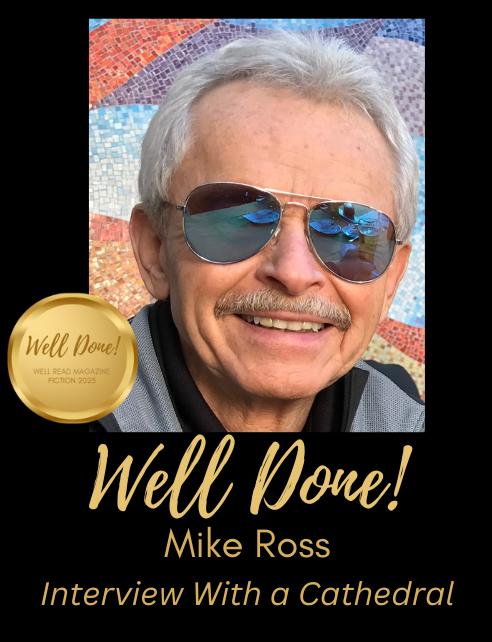
Interview With a Cathedral
Mike Ross
“I’m not really a cathedral,” she sniffs in Catalonian, the native language here in Barcelona, Spain. She shrugs a little for emphasis. “I’m just a church with a fancy name, La Sagrada Familia.You can call me Sagra if you want.” Her attention is drawn to a swirl of motion on the main floor. She turns back to me. “Just a moment, please. I have to attend to something.”
Sheturnsherfocustoayoungfamilywhohasjustentered.Apriest approaches them and guides them to a side altar. The young woman holds a tiny infant and the scene glows like a Michelangelo painting, motherandinfant,fatherhoveringnearby.Thepriestmuttersaprayer in Spanish, pours a bit of water on the baby’s head. It jerks then squawks and bawls, and the baptism is complete. “Sorry,” she says, smiling,asshereturns.“Ilovethesenewbeginnings,rebirth,renewal and all of that. I believe it’s what makes me important.”
Herimportancehasledtofameandallthatcomeswithit.Iaskher how she feels being gawked at and having millions of folks trample
across her threshold every year?
“Well, I’m used to it by now. I seem to be a cross between Marilyn Monroe for gawking and Grand Central Station for trampling,” she laughs at her self-comparison. “After 142 years, I’ve been through it all. The thrill of my first years, the nightmare loss of Anton, abandonment, war, and finally a new start.” She sighs. “Of course I have visitors who have heart attacks, get sick, faint. One fellow took a pee in the west corner.” She chuckles, and light shines through her stained glass. “Nothing is new to me anymore.”
I ask Sagra what her earliest memory is.
She thinks for a moment. “I was inside Anton’s head, I remember that.” She’s referring to the design genius, Antoni Gaudi, whose creation she is. She will often refer to him as just Anton. “I was his vision, like a symphony was inside Beethoven. He wanted me to be a singular design, a church like no one had ever seen before, something unique. Anton wanted to reflect the symmetry he saw in nature. He believed all design was there, already created.”
Is that why the columns look like redwood trees and the ceiling supports like branches, I ask? She nods.
“Did you notice my west facade?” She asks. Of course I had. It looks like concrete was splashed in bucketsful against the building and left to run down and congeal. “It’s fluttering leaves, you see, like in nature.” What of the bowls of fruit atop the parapets?
“Oh my, I think Anton might have gotten a bit into the wine stores when he sketched those! But it’s part of my playfulness.
Makes me feel a bit like Chiquita Banana with a fruit basket for a hat. He loved the fun of the design, it made him so happy, so I didn’t complain. But when he wanted a Christ figure sitting on a giant mushroom I told him a firm no.”
She speaks about Anton like a lover. “Oh yes, we were deeply, madly in love. We began our days together, celebrated when my tree columns turned out so beautifully, and commiserated when he tore up a design that didn’t work. We lived and breathed as one. He was 73 but with me, he was a young man, full of energy and excitement. Life without him was unthinkable. Until 1926.”
She recalls the day her beloved Anton died. He’d just left her in the late afternoon with plans for the east facade racing in his head, she says. “He never paid much attention to the outside world. I was his world and he was mine.” He was so distracted he didn’t hear the streetcar clanging its warning bell. The car smashed into him, full on. He landed several yards away, unconscious. “He was a bit disheveled and his beard hid much of his face. No one recognized him at first. They took him for a beggar. The clinic they put him in did nothing. When at last someone realized who it was and took him to the real hospital, it was too late. He died.” She pauses and glances away, voice shaking. “I died.”
The silence lasts several moments. I ask her what happened after she lost him. “I grieved for months, years probably.The loss of him is still sometimes crushing, the memory almost unbearable. I let myself go. Funding stopped and I was abandoned. That time of my life was the darkest.”
It was also a dark time for Spain. Three years after Gaudi’s death, the financial world collapsed and famine and death came to Spain, followed by another of the Four Horsemen of the Apocalypse:War.The fascist dictator Ferdinand Franco fought and defeated the forces of the Republican government. Hemingway and George Orwell fought with the Republicans, Hitler supported Franco.After millions of deaths, the war ended and Franco became dictator. “Some of his fascist thugs set fire in my office, where Anton had kept my design blueprints. They were destroyed. That was almost as hard to bear as Anton’s death,” she says in a low voice. “During the war, a few partisans took refuge in me. I hid them in tiny side rooms and in nooks in my towers. It made me feel good, to know at least I was helping people in times of trouble.” I ask how long she was abandoned. She brightens.
“Some funds were raised in the 1950s, as I recall, and volunteers cleaned up my inside.The war had been over for 20 years and even though Franco still ruled the country, people began donating to me again. But the money wasn’t enough. That depressed me. Then someone in the city government had an idea to copy the Mona Lisa scheme in France!” I look confused and she says she’ll explain.
“After World War II, Paris had to lure back her tourists to make money. Someone there arranged for the Mona Lisa to be stolen. It wasn’t da Vinci’s best work but it was small and easily hidden. Then the authorities flooded the world news media with headlines about the theft. The intense, months-long search dominated cultural news. When the thing was found and returned to the
Louvre, the celebrations made headlines again. Tourists worldwide flocked to Paris to see Mona! Still do. It was a sensational success. The marketeers here in Barcelona wanted to do a similar campaign but how do you steal and hide something with hips as big as mine?” She laughs at her own joke. “You can’t. So they cloaked me in controversy (I supposedly am hated by the neighbors), tragedy (the loss of my dear Anton), and mystery (did I hide refugees fleeing fascism? yes, but I won’t name names). The tourists and the money have been pouring in ever since.” She shrugs. “And there it is.”
Well, not quite. I ask her how she feels about being nearly completed.
“Oh, that. Small detail. The builders will make sure some construction is always going on. Churches under construction pay no taxes!” She waves her hand. “With my bowls of fruit, exploding stars on top of my tall, skinny towers, my redwood columns and the magical light through my stained glass, I’ll always be unique and that brings fame.” Is that enough, I ask? Is fame from unique design the most important thing?
She shakes her head a bit. “No. Fame alone is empty. Look,” she says as she sweeps her hand across her vast, crowded interior, “my people are Christians, Atheists, Agnostics, Jews, and Muslims. They are all my people. To them I’m Mother Nature in stone, the way Anton made me. Nature means new beginnings, rebirth. That is my true significance, not design, but renewal.” She nods to another young couple who have just entered. “Forgive me, I’ve
another baptism.” I thank her for her time.
In little side chapels, christenings take place hourly, couples marry, others seek spiritual help, all part of new beginnings, defining the importance of La Sagrada Famila. I watch as the light streams in through the orange, gold, green and blue glass and washes over everyone, rebirth in its wake.
The author, Michael Ross, has flipped burgers at Burger Chef, been a County Jail administrator, a German teacher for 35 years, and a tour guide for 45 years. He lives in Michigan, with his wife, Dianna (an awesome editor), and has loads of kids and grandkids. He is a traveler, runner and skier but his first love is writing.

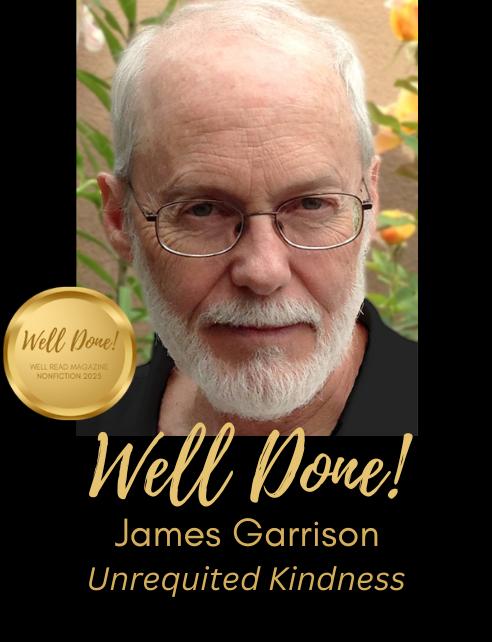
Unrequited Kindness
James Garrison
The summer when I was ten years old, a huge weight fell on my right foot and shattered my big toe, separating the flesh from the bone so that it looked like the meat on a drumstick flopping down from the chicken leg. That event led me first to surgery to restore my big toe and then to a remarkable show of kindness from strangers. I appreciated the surgeon’s skill, though he made me sufficiently whole to pass my army physical, but I never understood the reason for kindness from strangers or adequately thanked them—and I’ll never forget it.
My brother was seven years my senior and clearly negligent in causing my injury when we tried to move a swimming pool bench with the weight propped against it. Or perhaps I tried to move it alone, but he was there. He was preparing for a swim pageant or something like that, and I was helping him. It was the summer I first took swimming lessons from him in a regular class. The prior year his teaching had consisted of throwing me into water over my
head and telling me to swim for it. Then, while I was screaming and going blub, blub, blub, he finally jumped in and pulled me out. Of course, my father was standing there and ordered him to pull me out. Years later my brother told me he regretted doing that. “What?” I asked. “Throwing me in or pulling me out?” I blame my brother for most of the physical injuries and other difficulties of my childhood. (How he became a rocket scientist and head of some NASA center for advanced space propulsion I’ll never understand.)
We lived in the house my father built. He began work on it around the time I was born, and it took him two or three years to finish it, before we moved in. It was a cinder block house covered with stucco on the outside and inside. The outside was white, and he “white-washed” it every year or so. The inside was painted whatever colors were available as cheap leftovers at the local hardware store. I recall one year when our kitchen was a shade of purple. Since the cold made the walls sweat in the winter, we had to paint them almost every year. After my father died, my mother paid someone to paint all the walls white, which is how they stayed until she moved fifteen years later to a house nothing like the one my father built.
Anyway, to finish this aside, my father designed and built this house all on his own, dug the cellar, framed it in, set the concrete blocks, installed the plumbing, wired the electricity, everything except the fireplace and chimney for which he had help from a friend. It all worked fairly well, except my mother refused to let us
have a fire in the fireplace. Instead, my father built a bookcase in it where we kept a set of cheap, red-bound encyclopedias. I once tried to read them, but I don’t remember much beyond “aardvark.”
We were living in this house when my brother caused me to crush my toe and go about on crutches for weeks. I never realized that hobbling on crutches with a huge bandage on one’s foot could transform me from a ten-year-old, insignificant nuisance, most often told to get lost, into an object of attention and sympathy. Before, I doubt that any adults, other than my parents, or friends of my brother’s, ever considered me worthy of attention of any kind. My brother, I’m sure, had considered me an interloper from birth, someone who was best just ignored, unless to tell me he “wouldn’t give me air in a bottle” or to call me birdbrain or fart blossom, though I probably returned those in kind. But after my unfortunate injury, his girlfriend gave me a much-coveted Hardy Boys book that cost more than my meager allowance, and a woman I didn’t know, and my father and mother certainly didn’t know, took me under her wing.
My brother was a genial, good-looking high school senior, and in my recollection, something of a local heart throb, with his nineteen-fifties crewcut and lifeguard tan. He had good grades and lots of friends, and he even got his photograph in the local newspaper from time to time and in the high school yearbook, crowning some teenage girl for something or other. Me jealous? Never.
But I don’t think the woman who temporarily adopted the
injured waif while his big toe healed had any reason to want to help me because of him. She may have had a connection to the swim pageant or perhaps her daughter went to school with my big brother. She had no children my age, and the daughter was dating some other guy, not my brother. I remember her, my benefactor, making the daughter’s date surrender his shoes so that she could shine them. Or maybe she just told him he needed to go shine his shoes himself before he went on a date with her daughter. To me the woman was royalty, or at least a duchess. Or maybe just an angel.
She would pick me up at my house close to the public pool where my brother worked and take me in her car to her house. I remember being enthralled with the beautiful sunroom and the furniture and real shag carpets and the television, but I can’t remember how she looked. Just the aura that surrounded her. Perhaps like one of the sitcom housewives in the old fifties television shows, but in color. And she never seemed the passive type. In fact, she always seemed in command. Like telling the teenage boy to shine his shoes, or insisting she shine them for him.
I was surprised my mother would surrender me into the woman’s custody, since she was not a relative or even a friend of my mother’s. Didn’t even go to the same church and may have been Catholic for all I know. My mother was so protective, I never went to a friend’s house overnight, or vice versa. In fact, my mother had few friends who came to the house in those days, mostly relatives, of which there were many. I do recall a couple of
neighbors who came over to sit on the front lawn with my parents, watching us kids throw sock-covered tennis balls at bats or catch lightning bugs in old mayonnaise jars with holes in their lids. At the time of my injury, my mother was going through severe depression, and had been for the last year, even had electric shock treatments. I wonder if my benefactor/angel knew about that.
NoTV, car, telephone—that was how my family lived in 1956— until my mother used her weekly allowance from my father (yep, that’s right) to have a telephone installed so that my brother, the high school heartthrob, could talk to his girlfriend. So, I reveled in watching television at the kind woman’s house for a few hours and, I’m sure, drinking a Co-cola and eating snacks. And she gave me books: The Adventures of Robin Hood, a book of stories about dogs, and maybe a novel by Dickens—I can’t remember; but I still have the old, worn Robin Hood book. I can see its faded red cover on my bookshelf.
Then my toe healed completely, though a bit stubby on the end, and my idyll ended. I never saw the woman again, and I cannot remember her name. She never asked for the return of her books— or for thanks.And as an unrefined and self-centered ten-year-old, I never thought to thank her for her kindness.
In my long life, many people have showered me with kindness, and either I’ve not recognized it or adequately thanked them. In one instance, the benefit provided had consequences that reverberated through my life.
When I was in college, my then girlfriend, a high school senior,
ran away from home and rode a bus to Chapel Hill, NC, seeking my help to escape from what she said was an abusive situation. I recalled her father watching television, an old Roy Rogers movie, cleaning his arsenal, the gun parts spread out on the floor and couch beside him, and instantly realized that this could get complicated. I never found out what exactly had happened with the father; my girlfriend made only subtle references to sexual abuse, although a couple were specific, and verbal. Before long, after the girlfriend arrived in Chapel Hill, I heard from home that the father had been storming about in his front yard, waving a .45 and expounding on what he’d do to me. This presented a quandary. Marriage was certainly not in the cards, nor was the girlfriend returning home to whatever the situation there was, at least as far as she, or I, was concerned.
Answering an ad in the local paper, the girlfriend and I visited an old Victorian house, as I remember it, where a room was advertised for rent by a family with two small children. That’s how we met Carolista, a friendly and attractive young woman with a poetic name that immediately appealed to me. She started asking questions about the girl’s situation, and ended up taking in my girlfriend, without any rent, asking only that she help look after the two young children. The girlfriend confided in Carolista about her abuse at home, and eventually Carolista managed to enroll the girl in high school to complete her senior year—and keep the father at bay. The girlfriend jilted me before graduating from high school, then left Carolista’s care to live … I don’t know where. I visited
Carolista again in the fall that year, and she did not know either. It was the sixties and communes were becoming popular.
Carolista owned a small jewelry store in Chapel Hill and another on the North Carolina Outer Banks, in Nags Head.When my future wife and I were planning our small and inexpensive wedding (in exchange for two tickets to Sao Paulo, objective Rio de Janeiro), we visited Carolista’s jewelry store in Chapel Hill to buy wedding rings. She happened to have two gold rings she had crafted before the price of gold went through the roof—it was less than $40 an ounce then. Each of the rings has a lovely design that doesn’t quite match the other but complement each other. Sort of like my wife and me. For several reasons, the rings are the most precious things we own.
I searched for Carolista on the web a few years ago and discovered that she had died young, yet she was something of a hero on the Outer Banks of North Carolina. There’s even a street named after her and a plaque nearby. She and her children were on the dunes near Nags Head one day in 1973 when she spotted a bulldozer preparing to flatten one of the highest dunes. As she had when she encountered my then-girlfriend and me, she sprang into action. “North Carolina Woman Who Saved Jockey's Ridge To Be Featured on Highway Historical Marker.” NC Division of Parks and Recreation post on June 26, 2023. The article recounts that:
On August 15, 1973, [Carolista] Baum courageously
positioned herself in the path of a bulldozer sent to remove sand from Jockey's Ridge. Defying the machine's progress and finally engaging in a heartfelt conversation with the bulldozer's operator, the driver departed the dune. …
While local organizations had previously discussed protecting the expansive dune from encroaching development, it was Baum's unwavering determination that transformed the idea into reality. Inspired by her dramatic protest, Baum co-founded the group People to Preserve Jockey's Ridge, rallying support through fundraising initiatives and petition drives to capture the attention of state lawmakers and local officials.
Not long after seeing this article, my wife and I visited the Outer Banks—and there was Carolista’s name on a street sign and a marker commemorating her victory. There’s a Jockey Ridge State Park now, thanks to Carolista, and she has received well-deserved recognition for her decisive action.
But I never thanked her—or maybe I did and just don’t remember it. My wife and I paid for our rings, and we certainly thanked her for those. But as far as the wayward girlfriend? All I can say is that for Carolista’s perceptiveness, kindness, and generosity, I am forever thankful. Carolista certainly is my hero.
James Garrison practiced law before writing three award-winning novels: QL 4, set in the Mekong Delta in 1970, The Safecracker, a legal thriller, and What Seems True, inspired by an unresolved 1979 murder in Texas. His latest work, Ruminations: stories, essays, and poems, was released in 2024. His prose and poems have appeared in literary magazines and anthologies. www.jamesgarrison-author.com
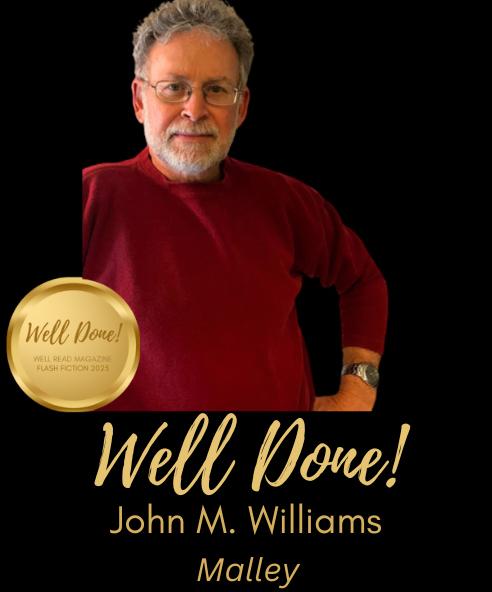
Malley
John M. Williams
The pregnancy of Malley’s mother, which led to his birth, was unwelcome all around. Neither she, Malley’s father, nor what were soon to be Malley’s two older brothers had any desire for an additional member of the family, and considered his conception at best a vile accident, at worst a stroke of cosmic vindictiveness.
After his uncelebrated arrival, his father, secretly suspecting this wasn’t his doing, simply ignored him; his mother, who wasn’t gifted with an inexhaustible supply to begin with, withheld her love; and his brothers tormented him with impunity and righteous indignation.
Some would call that a bad start. And things didn’t get better. Do the unwanted and despised exude some subliminal chemical that alerts the people waiting in each subsequent phase of life? Apparently so, because the cruelty and ostracism of grade school unfolded inevitably when he got there.
He survived.
In high school the situation grew official with the advent of the “Hate Malley” society—not exactly a club, more of an underground conspiracy enabling everyone besides Malley to have a Malley: someone to whom all recognition, support, love, affection, and friendship was denied. People need that.
But at least they recognized a “him.” Which for a shaky moment enabled him to experience the first spasms of ego formation.
Then high school ended and that changed. The world ceased to hate, but just forgot him, which killed the ego thing and gave him some breathing room.
He found a job managing a warehouse for a small manufacturing company. A solo job at which he became so proficient no one else was needed. He had no way, and no need, to tell time—he just appeared at work and left punctually, went to bed, woke up, ate, likewise.
Malley found a rental house within walking distance of his job, ate very little, and had almost no needs or wants. He had no car, no computer, no phone, no television, and though once or twice he had heard a strain of music that kind of roused him, he had never really caught on to the music thing either.
So he was able to save the better part of his salary. As the years went by, his weekly walks to make a deposit at the bank resulted in a substantial sum, and when the old man renting him the house had a stroke, his family offered to sell Malley the house, so he bought it.
As he grew into middle age, luckily the manufacturing company survived the moody economy and stayed in business, and he kept his job. He didn’t want, and never bothered to imagine, any other.
Except for the occasional mildly curious glance of a random stranger, or someone in the grocery store or bank who had been seeing him there for years and paused to wonder, it was as though he had dissolved so deeply into the fabric of existence that no one was any longer aware of him.
He was the only free man in town.
Since it was so empty, Malley’s life was full.At the bifurcations of daily life—turning to the left or right, entering the first or second door, stepping or not on a crunchy leaf, for example—his mind habitually dramatized a flash projection of every path not taken: the different perception of reality from another angle, an alternate sequence of events, an uncrunched leaf being blown by the wind under a camellia bush where it could peacefully remember its chlorophyll-fattened days in the sun. His mind was a theater, constantly playing scenarios that either might have, could have, should have, maybe somewhere else had, or never would have, happened. Whenever he closed his eyes, places he had never been, people he had never seen, situations he could never have purposely imagined, materialized effortlessly, ceaselessly, and he just watched.
Time was equally footloose in his timeless mind. He often found himself in the far future experiencing the present like a memory, walking through a world dreamy because it had already happened.
At other times he experienced the present from the past, simultaneously seeing his projection of what the future might be, as it didn’t match but, as it were, shadowed what the future had settled for.
Some days he saw something when he looked in the mirror, some days he didn’t. When he did, he experienced what he would have called humor if he’d had need of a word for it, which he didn’t. He would probably have said that sensation was the essence of everything, if he’d had the inclination to formulate a philosophy, which he didn’t.
Walking onto the endlessly interesting blank canvas of his leaf and twig and acorn littered driveway after work, no eyes watching him, alive in no one’s mind, he might see a squirrel high in the water oak and inevitably find himself seeing the world from that perspective, sharing the squirrel’s consciousness. Same with birds. He never tired of seeing the stationary world through their darting eyes. Or the ants at his feet, into whose intricate kingdoms his imagination burrowed. Or he might notice a twig in the yard and experience its time-lapse decay back into the earth—or its disintegration by lawn mower blades, the pieces searching for other parts of itself, haunted by the ghosts of those days of being a twig. He would share the life experience of the beans he ate for dinner, from the sprouting out of the warm moist earth, to the hands picking them, to their entering his digestive system and becoming a part of him.
After dinner, weather permitting, he would sit on the back porch
and watch the sun set, just as he would watch it rise out his front window in the mornings. He never got tired of that slow, suspenseful drama. He could see, as from a distance, the great ponderous globe slowly creaking around, could see the speck of himself as it turned into or out of the light. He spent endless hours trying to reconcile the vertical depiction of the world with its horizontal perception. Weather not permitting, he might spend the time in the clouds.
What did Malley believe in?
Ameaningless question.And a waste of time. He didn’t believe in anything, which is how he could believe in everything.
John M. Williams retired from LaGrange College in 2015, and currently is a mentor in the Reinhardt University MFA Creative Writing program. His first novel, Lake Moon, won the Georgia Author of the Year (First Novel) award in 2003. His most recent novel, End Times, was published in fall 2023 by Sartoris Literary Group.
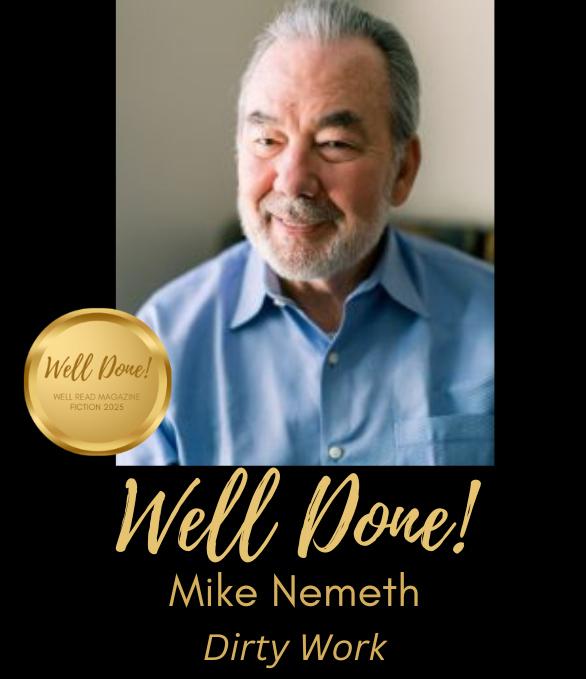
Dirty Work
Mike Nemeth
At the crack of the bat, I turned and ran for the outfield fence. Over my left shoulder, I watched the ball climb over the sun and hesitate at its apex before hurtling toward the warning track far ahead of me.
I pumped my arms and dug my spikes into the soft field but I wouldn’t reach the fence in time.After three long strides, I pivoted to face home plate and located the ball falling from the sky like a meteor crashing through earth's atmosphere. Fear froze the blood in my veins. I stretched my glove hand toward the heavens and jumped as high as my legs could propel me, but I caught only a handful of spring air. Ten feet behind me the ball collided with the outfield wall, bounced once on the warning track, and caromed off my shin.
Ignoring the sting of the ball, I scuttled on hands and knees to retrieve the ball, watched the batter round third base and head for home. I rose and fired the ball in one fluid motion.The ball sailed over the cutoff man, ricocheted off the pitcher's mound, and
bounded toward the catcher. He left his position and smothered the ball on the infield grass as the batter slid across the plate behind him.
Game over.
I rested on my haunches, holding my breath to stave off tears of shame. After several minutes of self-pity, I chanced a glance around the field and spotted Dad standing on the third base line. I hadn’t expected him to show up. Now I wished he hadn’t.
I joined my teammates, their faces long and sad, in a line, congratulating the ebullient winners like we’d been taught by our coach. When Allen, our pitcher, passed the kid who hit the home run, he spat, “It was just a stupid fly ball.”
A stupid fly ball I didn’t catch. My teammates blame me for losing the game.It’s the first game of the season, on the first Saturday of summer, and I was already a failure.
The batter shoved Allen and a scuffle ensued, but coaches quickly separated the two teams and the players dispersed.I shuffled toward Dad and my coach who waited for me with their arms folded across their chests.
When I was within earshot, Dad said, “You run too long in one place.”
I wondered if that was a professional opinion. After all, he was an engineer.
“He shouldn't have looked back,” the coach said. “It slowed him down. We teach 'em to run to the spot, then pick up the ball ‘cause you run faster looking straight ahead."
Dad nodded in full agreement. “He didn’t get a good jump on the ball.”
I stopped in front of Dad. “I read the ball off the bat. It was way over my head.”
I turned to my coach. “You had me playing too shallow.”
Dad smacked the back of my head hard enough to knock off my cap.
“You’ll play where the coach tells you to play, young man.”
“Frank, not all boys are cut out for center field.” The coach picked my cap out of the dirt, dusted it off, and set it on my head. “Eddie doesn't have the speed to cover center field no matter where I position him.”
I shuffled my feet, not sure if I should interlope again or catch up to my teammates. Fear of their ridicule paralyzed me. I wanted to play organized baseball because it was Dad’s favorite sport. The mistake I made was wanting to be a center fielder because Mickey Mantle was Dad’s favorite player.The mistake the coach made was giving me a try.
“Wouldn’t surprise me if you cut him,” Dad said to the coach.“Struck out twice today.”
The coach shrugged. “He got a walk, scored a run.”
“He didn’t hit a lick in Little League so don’t expect him to hit for you, either. His brother, Danny, is the baseball player in our family.”
“Sure. I remember Danny from hisYouth League days. That boy was a homer just waiting to happen.”
“He was a star in high school ball. He’s sure to get a scholarship to play in college.”
“Well, Eddie here has one skill that will keep him on my team.” The coach gripped my shoulder in a fatherly way. “Did you see that throw?All the way from the warning track? Your kid's got a cannon for an arm.”
Dad scoffed. “You’re not going to try to make him a pitcher, are you?”
The coach spat out his chewing tobacco. “Nah, but I need a catcher.” He cupped a hand to his mouth and leaned toward Dad as though whispering a secret. “Our catcher should have waited for the throw and blocked the plate.” He straightened. “And I'd like to have a catcher with a gun.”The coach gave me an appraising look. “If he ain't afraid of the ball that is.”
Catcher! The position is reserved for kids who can’t run and can’t hit but are willing to demean themselves by chasing wild pitches around the backstop. But it’s either play catcher or get cut from the team.
“I'm not afraid of the ball, sir.” I puffed out my chest in a show of mock confidence.
“That’s what I want to hear.” The coach flashed a mouthful of brown tobacco-stained teeth and gave my shoulder an encouraging smack.
“Then I guess you're a damn catcher.” Dad shook his head and walked away.
Thecoachshrugged.“We’llgiveitatry.Let'sgetyourequipment.”
I followed him to the dugout where he filled a canvas bat bag with shin guards, chest protector, face mask, and a padded catcher's mitt. The equipment was old, the seams frayed and torn, the straps stretched and no longer elastic, the edges worn smooth. But they were my ticket to play Youth League baseball. I walked home alone with the “tools of ignorance” slung over my shoulder.
As I lugged theequipmentto my room, Danny stuck his head out his bedroom door. “You must be the chubbiest kid on the team. They always make the chubby kid play catcher.”
Dad didn't waste his time watching a damn catcher play Youth League baseball. On game days I snuck away before he could make excuses for not coming to the game.
According to Dad, the Brooklyn Dodgers had scouted him as a high school player in rural Iowa, but when Hitler invaded Poland and war was imminent, he had abandoned my grandfather’s pig farm and enlisted in the Navy. It was Danny’s burden to make up for Dad’s sacrifice. My baseball games would never be enough.
Dad was right about my hitting, of course. However, I learned to look fierce in the batter’s box and milk wild pitchers for walks. I can’t count the times the coach said, “A walk is as good as a hit.” I knew—all players knew—a walk was only as good as a hit for a player who couldn’t hit. I hadn’t gotten a hit all season and my teammates had begun to grumble. Since no one else wanted to play
catcher, the coach told the grumblers to shut their yaps.
The fact that I hadn’t gotten a hit was on my mind as I came to bat with two outs in the bottom of the last inning, losing by a run, with Timmy on third base. The coach couldn’t pinch hit for me because if we tied the game, we’d have no one else able, or willing, to play catcher. He counted on my ability to draw a walk and keep the game alive. With the pitch count full—three balls and two strikes—the odds were good that I could draw another walk, giving the next batter in our lineup a chance to drive in the tying run. But this pitcher had alternated balls and strikes so the next pitch was just as likely to be a strike. I couldn’t live with the embarrassment of a called third strike to end the game. I had to swing at the pitch.
And I did. For a microsecond the bat and ball shared the same space and the ball rebounded off the bat. It flew in a graceful arc, over the outstretched arm of the pitcher, between opposing infielders, beyond second base, and onto the outfield grass. The tying run came home from third base and my coach slapped me on my butt as I reached first base. Our next batter, Allen, slugged a home run and won the game for us.
When I crossed home plate my teammates were there, waiting for Allen. I got caught up in the crowd of players congratulating our hero, and the melee gravitated toward the chain link fence behind home plate where I was crushed against it by the jubilant celebration. The sharp point of a twisted metal thread ripped my uniform and gashed my upper arm. It dripped a stream of bright red blood.
I bounced into the house with a wide grin and a bloody arm.
“Oh, my God,” Mom screamed. “Let me fix it.”
As she applied Mercurochrome and murmured soothing encouragement, Dad said, “Stop babying him.”
Mom ignored him and covered the cut with an unnecessarily large piece of gauze and wrapped an athletic bandage around my arm far too many times.
“I drove in the tying run and scored the winning run.” Technically, this was true, but I didn’t reveal that the next batter hit a walk-off home run and was the object of the celebration.
“Looks more like you’ve been in a fight,” Dad said.
“No, during the celebration I got crushed against the backstop. I thought you’d be proud of me.”
“So, the blind squirrel found an acorn. Will we have to pay for the uniform?”
For the first time in my life, I called him a dirty name. Not out loud, of course. We didn’t have to pay for the ripped baseball uniform. Mom stitched up the L-shaped tear, and I wore my lucky uniform to every game.
In the last game of the season, we played for the championship against the team that had beaten us in the opening game of the season—the loss attributed to my slow feet.
Leading by two runs in the bottom of the last inning, with two
outs and a runner on second base, our coach gathered us on the mound for final instructions. Their next batter would be the kid who hit the ball over my head to win the first game of the season.
“Let’s end this right here. Give him somethin’ to hit, make him put the ball in play,” the coach toldAllen. To the rest of us, he said, “You do your jobs and we’ll be champions.”
As I trotted back to my place behind home plate, the batter took vicious practice swings in the on-deck circle while sneering at me. “Gonna be just like last time,” he warned.
“Nah, this time I’m behind the plate, not in the outfield.”
“You couldn’t catch your momma if she was wearing combat boots. That’s why you’re a catcher.”
I didn’t let him get into my head. I squatted behind him and signaledAllen we were ready for play.Allen did as he was told and laid a fat pitch down the middle of the plate.
The batter swung so hard his helmet flew off and he dropped to one knee in the batter’s box.The ball was struck hard, but the batter had overswung and topped it. Like a laser beam it streaked along the ground as the batter got to his feet and stumbled toward first base.
Our shortstop nearly made the play. The ball kicked off the heel of his glove and ricocheted toward the left field foul line. The runner from second base scored easily, reducing our margin to a single run. Our fielders chased the fleeing ball like cops chasing a purse snatcher. Timmy, our left fielder, finally smothered the ball in foul territory as the batter rounded third base. I tossed my mask
aside and planted a foot on either side of the plate. Timmy’s throw was strong and true but a few feet short of the plate, nearly striking the runner as he began his slide.
Ignoring the sliding runner, I concentrated on the ball, caught it with two hands and dropped to my knees. The batter crashed into me,spikesfirstandtheimpactflippedmeontomyback.Thecrowd groaned and gasped. Time stood still as we waited for the umpire’s call. When the dust cleared, the umpire reached down and turned my glove over to reveal the ball resting on my chest protector.
He punched the sky and bellowed, “He’s out!”
The crowd went wild. Lying there for a glorious second, I absorbed the cheers from the stands. My dream had come true: we were champions.
The once-cocky batter skittered away. He knew what was about to happen and so did I. Before I could stand, I was mobbed by fourteen delirious teammates, crushed at the bottom of a delicious dogpile, covered in red dirt and borrowed sweat.
When my teammates pulled me to my feet, I discovered that my uniform had been ripped again, and my thigh had been sliced by the batter’s spikes.
I limped to the dugout to remove my equipment for the last time and heard a gasp from behind me.
“Let’s get you to the emergency room, young man,” the coach said. “You’ll need stitches.”
“No way, Coach. I’m leaving it just like this for everyone to see.”
He shook his head in the way fathers do when they disapprove of what their son is doing but are proud of it too. “I’ll walk you home and explain to your dad,” he said.
When Mom saw the blood on my leg, she shrieked, “Oh, my God!” She took a step to hug me and thought better of it. She placed her hands on either side of my face, careful not to get dirt and blood on her sundress and gave me an air kiss. “I’ll fix you up.”
As Mom headed to the bathroom for some medical supplies, Dad shuffled up to me. “What happened?”
“I blocked the plate and got spiked.”
“He won the game for us and the championship to boot,” the coach said. “I feel pretty smart now. He was the best dang catcher in the league. He wasn’t afraid of the bat, foul tips, or sliding runners. No wild pitches got past him and no runner ever stole a base. Made theAll-Star team.”
Dad made a sound that betrayed a combination of disbelief and confusion. “You’re joking, right? Has he learned to hit?”
“There’s more to the game than hitting, sir,” the coach said. “Every team needs someone to do the dirty work.”
Mike Nemeth, a Vietnam veteran and former high-tech executive, writes love stories tucked inside murder mysteries. The Undiscovered Country, Parker’s Choice, and A Tissue of Lies are multiple award winners. Mike’s works have appeared in The New York Times, Georgia Magazine, Augusta Magazine, Southern Writers’ Magazine, and Deep South Magazine. Creative Loafing named him Atlanta’s Best Local Author for 2018.
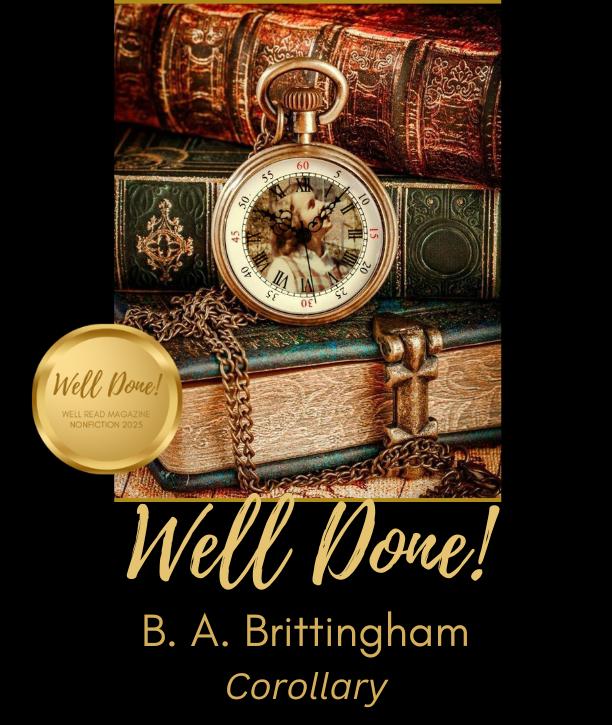
Corollary
B.A. Brittingham
Admittedly, I am an avid collector of seemingly useless snippets of information garnered from the pages of newspapers and magazines. I came across one of these clippings shortly after publishing a piece about national lessons learned from painful experiences such as Vietnam, and it occurred to me that the quote contained a corollary to the issue of lesson-learning.
According to the Heublein National Accounts Division, (now defunct) we retain 70% of what we learn when that knowledge is acquired through our own doing, but only 10% through what we hear. This would seem to indicate that we are a race of blockheads inclined to dismiss the easier forms of learning.
Like the rest of us, I believe that it is each person’s right to make his or her own mistakes. Still, one cannot help but wonder if such an attitude isn’t merely egoism overriding intellect; for certainly there are some things that we should take as irrefutable despite not having lived them.
Such was the case with Carley.
I have never met Carley though I had seen her picture and read
her story in the newspaper of a town in which I was living at the time. I was also privy to progress updates when my sister-in-law, who is licensed therapist, began working with her three times a week. Carley’s mother was also a physical therapist but for ethical reasons she did not treat her daughter.
On a sultry July evening several years before, Carley accepted a ride from a young man she barely knew. He was driving a very red, very flashy, very fast Camaro and Carley, like so many of her peers, enjoyed taking that occasional chance. Mortality was something that happened only to other people.
Moments later, with the accelerator mashed to the floor, the driver lost control, and the car went airborne before flipping several times. Paramedics arriving at the scene found the young man beyond resuscitation. Carley, barely alive, lay pinned beneath one wheel of the ton-and-a-half vehicle.
As is so often the case, seatbelts had been regarded as an automotive frivolity.
At the hospital, her family was told to prepare for the worst. Doctors held little hope as she slipped into a deep coma and, considering the severe neurological trauma she had sustained, the word ‘vegetative’was mentioned more than once.
But with that undefined and inexorable faith possessed only by religious ascetics and parents, Carley’s mother refused to accept this prognosis. Every day she sat at her child’s bedside talking, reading unheard stories to an unresponsive form. Carley was sixteen when she stepped into the Camaro and seventeen when she
woke up. She had missed both her birthday and Christmas.
Miraculously, the cognitive side of her mind was undamaged. She thought clearly and logically, though still like a teenager. She recovered some motion in her left hand and leg. Eventually, she began laughing again and speaking very slowly in an extremely soft voice.
But the path to recovery is a long one scattered with small, hardwon victories. Three more years went by, and she realized that she had forfeited nearly half of her ‘fun’ adolescent years for a few moments of excitement.
Carley’s is a story laden with lessons. There are the lessons inherent in her ongoing personal struggle to regain control over her body, a control that is granted to us freely, but only once. Subsequently, we must earn it. There is the lesson of a mother’s defiant courage in the face of medical advice that suggested she suspend hope. Carley’s mother continued to ‘ride herd’ on her daughter’s treatment, bullying reluctant insurance companies, demanding the maximum from the administration of the rehab center where Carley stayed. There is also the lesson every parent from time immemorial has tried to instill in his or her child, the one that says simply “Think! Think before you do it!”
And finally, there is the cruelest lesson of all: that each of us must live with the consequences of the choices we make.
As the former original owner of an old but well-loved (white) Camaro, I count myself among the ‘blockheads’mentioned above. When both the car and I were much younger and prone to
independent, albeit foolish choices, we sometimes tested its mettle late at night on a desolate two-lane highway in the western part of the county where I was living. Caught up in the exhilaration of speed, I rarely considered the possible long-term aftermaths. And Ineverwore a seatbelt.
Though I still fiercely defend the right to free choice, I cannot avoid the frequent lump in my throat as I recall Carley whenever I turn an ignition key. While the spring in the shoulder harness was sprung from too many years in the Florida sun, I buckled up what remained of that safety restraint thankful that God or Fate or Kismet looked upon me benevolently in those days of my own extended childhood.
One need not be sixteen to make juvenile choices. But if we are given the chance to witness the results of such decisions and still refuse to learn from the costly errors of others, then we have become irrevocably mired in puerile behavior. Tragedy is not something we need to aspire to sample on a personal basis. The Carleys of this world have already done that for us.
If only we willlistenandlearnfrom what wehear.
Raised in the grittiness of New York City, Brittingham spent a large segment of her adult years in the blue skies and humidity of South Florida. Today she resides along the magnificent (and sometimes tumultuous) shores of Lake Michigan. Author of three novels, she has also published essays in the Hartford Courant; short stories in Florida Literary Foundation’s hardcover anthology, Paradise; in the 1996 Florida First Coast Writers’ Festival, and in Britain’s World Wide Writers. Recently published in WELL READ Magazine Aug. 2023 was the essay “Feed the Beast” and in the Dec. 2023 issue “Judas Season.” “Something of Significance” has appeared in Culture Cult Magazine. Poetry has appeared in Kitchen Sink Magazine, the ocean waves, Words for the Earth, the Crone’s Words, Green Shoe Sanctuary, Halcyon Days, The Emblazoned Soul Literary Review, Dear You-Poems Through the Heart, Culture Cult, About Time Anthology, and the Writers’Journal.
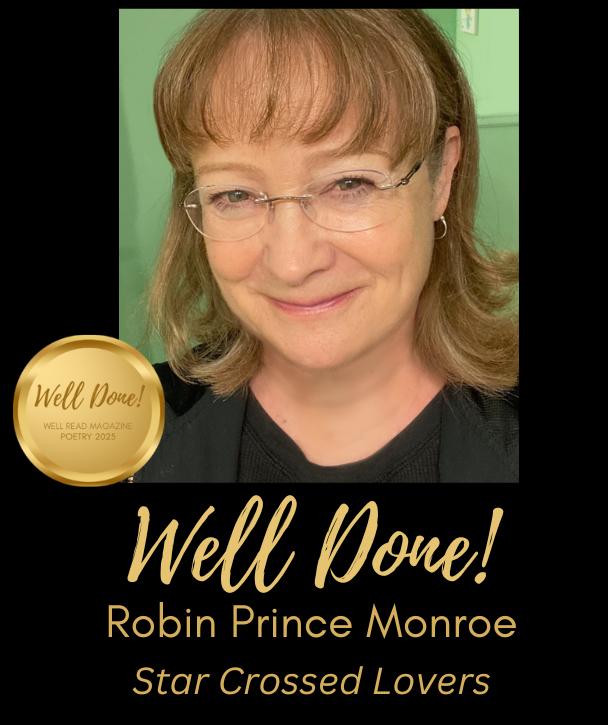
Star Crossed Lovers
Robin Prince Monroe
Adorned with scrim of clouds and mist, her face reflected in shining sand, Sun dresses in violet, rose, and gold preparing for her beloved.
Moon rises clothed in dusky gray, delighted to see her waiting there, His silver fingers stretch over the water, sprinkling gifts of sparkling stars.
He reaches to touch Sun’s gleaming face. Her golden arms fling open wide.
Then bound by time, Sun pulls away, And sadly, softly nods good-bye.
The sea oats whisper to the wind.
Bright tears splash waves with toppling light Smaller now but hopeful still, Moon bravely lights another night.
Robin Prince Monroe delights in writing for children; and has authored seven picture books, a middle grade novel, and a chapter book. Recently released titles for grownups include, Ridiculously Easy Crockpot Recipes, Ridiculously Easy Creative Problem Solving, Time Trees and Grandpa’s Knees, and Loss of a Loved One. Her work has also appeared in Guideposts, and Money Matters. www.RobinPrinceMonroe.com


HELLO
WRITERS &ARTISTS
CALLFOR SUBMISSIONS IS OPEN!
*No prompts or themes - no boundaries*
WELL READ is looking for submissions from writers and artists who have stories to tell – through words and art. We combine new and established voices from diverse backgrounds and celebrate different perspectives. We want people who aren’t afraid to shake things up, speak their mind, and share their humanity.
Click here for SUBMISSION GUIDELINES



CLAIRE CONSIDERS
Saltwater by Katy Hays
“Saltwater”
by Katy Hays
Reviewed by Claire Hamner Matturro
“Saltwater”(BallantineBooks2025)byKatyHayswilltakereaders on a long and fascinating journey—not just to the Isle of Capri, where it is set, but into the minds of two complex women, Helen and Lorna. On one hand, these two seem to have little in common—but on the other,theyshareeverythingthattrulymatters.Thenovelalsodemands a fair amount of time and attention to follow its twisting plot and layeredmysteries—butthat’strueofallgreatmystery/thrillers,isn’tit?
Andifyoulikeyourthriller/mysterywithageneroushelpingofgothic, all the better:
Saltwater is atmospheric and gothic around nearly every bend in its plotline.
Thosetwowomen—LornaandHelen—areexcellentcreationsfrom themindoftheauthor,whorevealstheminever-deepeninglayerswith such nuance and skill that readers will feel they know them—yet can stillbesurprisedbywhattheydo.Theytaketurnsnarratingmostofthe story in their own distinctive voices.
Money, lies, and a long-dead woman open the story on Capri, as a hungover Helen Lingate—the daughter of a filthy-rich family with its own tragic mystery—discovers her friend and apparent co-conspirator Lorna is missing. The Lingate family is not only fabulously wealthy but also guards its privacy to a level just shy of paranoia.As will soon
be revealed, this is not without good reason. The family fortune came from a morally bankrupt scheme of grand-scale fraud, which, of course, the Lingates have recast more favorably in their own mythology. Then there’s the lingering question of whether one of the two Lingate brothers killed his beautiful, glamorous wife by shoving her off a cliff.
The very first sentence sets the tone—“Money is my phantom limb.”Andthereinthefirstparagraph,theinitialforeshadowingoccurs with Helen’s further observation: “I saw how heavy the bag was when Lorna lifted it. Bulky with our cash.”
The second voice readers encounter is Lorna’s. If Helen’s opening doesn’t sweep readers in, Lorna’s will. When Lorna realizes in the opening pages of Saltwater that she is at sea, she says:
“Therealizationisaccompaniedbyafamiliarblandhorror.Thekind that always seems to whisper, Is this how I die?”
It turns out that Lorna is the assistant to Marcus Lingate, Helen’s uncle. Helen helped Lorna get the position after they became unlikely friends. Helen, who has no money of her own and is essentially a prisoner of her ever-controlling family and its wealth, seeks freedom. Lorna has a somewhat checkered past, with no riches, but also no one controllingher—orevencaringabouther.Shenotesthatherlifebefore Marcus involved “Odd jobs and no jobs, jobs that never made it onto my generously padded resume.”
Helen and Lorna both believe that if they can get enough money— bywhatevermeans—theycanfinallybefreetolivehappierlives.With thatgoalinmind,theytraveltoCapriwithMarcus,Helen’sfather,and
other assorted fellow travelers. The Lingates return to Capri once a year in a kind of twisted ritual to establish their supposed innocence in the death of Helen’s mother. Her mother, Sarah, was “famously found dead”beneathoneofCapri’scliffsthirtyyearsbeforethenovelopens. Helen is haunted by the question of whether her father got away with murdering her mother. That question is the primary mystery of the story—but far from the only one.
There are many other characters, including the sinister and mysterious Stan Markowitz, with his long, sharp canines and air of danger; Freddy, Helen’s boyfriend who also has a history with Lorna; and the ever-intriguing, all-but-ghostlike Ramata. Still, it’s Helen and Lorna who dominate this story.
All in all, an excellent read. Cynical? Yes. Sprinkled with some implausibility?Alsoyes—butwhocareswhenthestoryandcharacters are this good?
Katy Hays, who lives with her husband and dog in Olympic Valley,California,isthe NewYork Times bestselling author of The Cloisters.
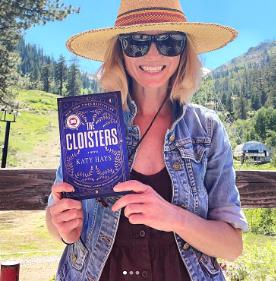
Finding Inspiration in Unexpected Places
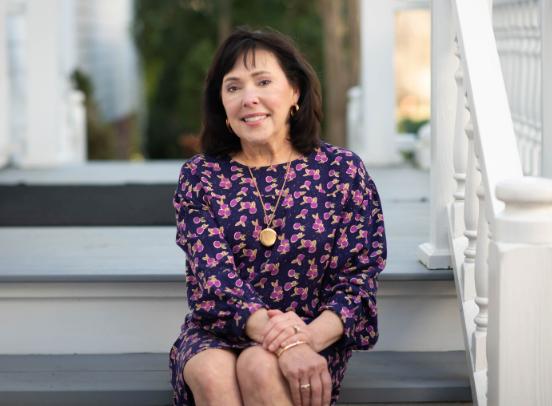
THE WRITER’S EYE
with Susan Beckham Zurenda and guest author, Dianna Rostad
This month, USA Today best-selling author Dianna Rostad discusses inspiration in unexpected places. She and I connected several years ago as debut authors with the same literary agent: me with Bells for Eli and Dianna with You Belong Here Now.
You Belong Here Now is a novel about family and belonging in which three brave young people from New York City board the orphan train headed west. Set in 1925, the story begins as Charles, Patrick, and Opal, after not being adopted, escape the train out of fear of being sent back to the misery of their former lives. Charles, the oldest, initiates a daring plan that takes them to Big Sky country. I hope you’ll read the moving story of these kids’ lives on the Stewart farm in Montana. But first, I want you to know about Dianna’s inspiration for the novel:
I’m happy to relay where I got the story concept for You Belong Here Now, especially since it took so long to get it into the hands of readers! The germ came back in 2007. Yes, you read that right. I came across an online news article about the orphan train and was astounded to learn these trains ran for seventy-six years, give or take. I’d never heard of this adoption phenomena. Was I not listening in class? All you teachers out there are probably nodding your heads. I googled orphan train and found all these precious street kids bravely making their way to the heartland and beyond with nothing more than a new haircut and a cardboard suitcase. Picturesofthemstandingontrainplatformsandhangingoutoftrain windows reminded me of a group of kids I worked with as a young woman.
In the late 1990s after the Rodney King riots in South Central Los Angeles, I worked with youthful offenders. Incarcerated in the Ventura School, I accepted these young people into my JTPA program. I ran them through soft skills courses to prepare them for employment. When they paroled, I visited them in their homes or group homes in Los Angeles and met with their parole agents or parents with the goal of helping them to find a job.
My South Central kids were much like those who rode the trains. They had missing parents, ran around in gangs and got into trouble trying to survive. I understood these kids and wanted to tell their story, but I was still in the 19th century obsessing over Lord Byron, my favorite bad boy from Regency London. I picked up my orphan train manuscript from time to time, and worked on the storyline and characters, but always put it back in the proverbial drawer. I had become that little wild horse from the opening of my book, stuck on the fence because I didn’t know where to set the story, until something rather prophetic happened.
I was living in Texas when my father drove all the way from the state of Washington for Christmas in 2010. God only knows what possessed a 70 year old man to undertake a journey like that, but I believe my grandfather, Montana Bill, sent him from above. My father brought pictures with stories on the back from his family’s ranch in Montana. They were from the 1920s with kids running around in overalls, wearing big boots, and sitting on worn porches. These pictures opened up a whole big world where I could finally seemystoryplayingout.Iturnedtomydadandsaid,“Thisiswhere
I’m going to set You Belong Here Now.” Many of the characters in this book, the way they talk, songs and legends, are all from my family. Charles is based on my son who was 19 at the time. Tender inside but a fierce protector of his siblings.
Nara began as her namesake, my maternal grandmother, but over time morphed into my brave, strong-willed, eldest daughter who was a natural leader. She was my “rule book,” and in You Belong Here Now, Nara is a rule follower. Charles, however, believes the only rule is “don’t get caught,” and the two collide until each bends, and they come to understand that neither fists and brawn, nor rules and laws mete out justice in our world; only love can do that.
There is a big piece of my heart and soul in this book, remnants of people I’ve cherished, feelings I’ve endured that will burst a heart. I hope readers out there enjoy it as much as I loved writing it.
THE WRITER’S EYE with Susan Beckham Zurenda & guest author Dianna Rostad
Dianna Rostad is a USA Today Bestselling and award-winning author. Her debut novel You Belong Here Now is a 2022 WILLA Literary Award Finalist for Historical Fiction and was shortlisted for Reading the West’s Debut Fiction Award 2022. A favorite task of her creative endeavors is the discovery and research of people and places where her novels are set. She has traveled extensively to pursue the last artifacts of our shared history and breathe life, truth, and hope into her novels. Dianna was born and raised in the Pacific Northwest and spendstimevolunteeringforvariouscauses.Shelovesreading,playing withBenneeherdog,andgrowingflowersinhergarden.Diannawrites big-hearted novels for wide audiences everywhere.
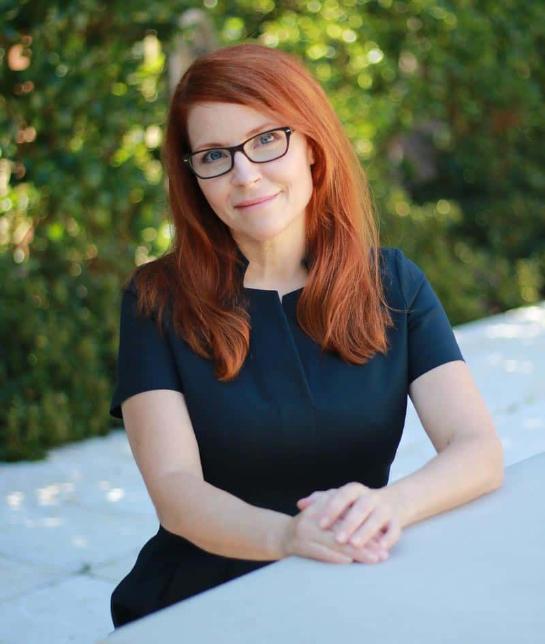
"I love this book, and I guarantee you won't find a finer debut work anywhere."
— William Kent Krueger, New York Times bestselling authorof ThisTenderLand
You Belong Here Now:ANovel
Dianna Rostad

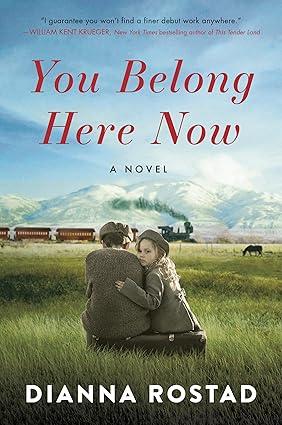


2-year/60-hour Program
Study One-on-One withAward-Winning Writers
Online Courses
Learn from Home
3 Writing Residencies
3 Entry Points to Start in the Program
Beautiful Rural Campus Nestled in the Etowah Valley (550+ acres)
Nestled in the shadow of Pine Log Mountain for the perfect writing experience, the Etowah Valley is a bridge betweenAtlanta and theAppalachian South, where nature meets culture. At Reinhardt University’s Etowah Valley Master of Fine Arts (MFA) Low-Residency Program writers create a literature that is story-driven and grounded in the places where we live, whether rural or urban.
Each summer, students visit our beautiful campus in North Georgia for a 10-day intensive residency to be immersed in writing daily writing workshops, craft classes, experiential excursions into natural and urban environments, and nightly readings on campus from our visiting writers. Our students travel from all over the United States to attend the summer residency to learn from some of the finest writers. In doing so, they embody a unique mixture of cultural traditions and lifestyles.Amid the thrivingAtlanta film scene and Southern environmentalism, we believe in the art of storytelling that develops voice and meaning to the individual artist.
For more information, visit the MFA website or contact the MFA director, William Walsh, at bjw@reinhardt.edu
Core Faculty:
Anjali Enjeti (creative non-fiction/fiction)
Southbound: Essays on Identity, Inheritance, and Social Change The Parted Earth
Jessica Handler (creative non-fiction/fiction) The Magnetic Girl Invisible Sisters
Soniah Kamal (fiction)
An Isolated Incident Unmarriageable
Donna Coffey Little (poetry/fiction) Fire Street
Wofford’s Blood
Michael Lucker (screenwriting)
Crash! Boom! Bang! How to Write Action Movies Rule One
Past Visiting Writers:
Laura Newbern (poetry)
Love and the Eye A Night in the Country
Gray Stewart (fiction) Haylow
Megan Volpert (poetry/creative non-fiction)
Why Alanis Morissette Matters Boss Broad
William Walsh (poetry/fiction)
Haircuts for the Dead Fly Fishing in Times Square
John Williams (fiction/creative non-fiction) End Times
Monroeville and the Stage Production of To Kill a Mockingbird
Adrian Blevins, Daniel Black, David Bottoms, Richard Blanco, Earl Braggs, Jericho Brown, Annemarie Ni Churreáin, Denise Duhamel, Stephen Dunn, Pam Durban, Alice Friman, Anthony Grooms, Beth Gylys, Ann Hite, Kristie Robin Johnson, Andrea Jurjević, John Lane, Ellen Malphrus, Reginald McKnight, Christopher Noel, Robert Olmstead, Janisse Ray, Megan Sexton, George Singleton, Sharon Strange, Chika Unigwe, Monica Lee Weatherly


I’m an indie author of two short story collections – Walking the Wrong Way Home and Sharp as a Serpent’s Tooth – Eva and Other Stories, and a novella, Oliver. I’m the editor and designer of WELL READ Magazine’s Best of 2023, and Best of 2024 anthologies, the Encounters With Nature anthology, and coeditor of The Best of the Shortest: A Southern Writers Reading Reunion. I’m also a freelance writer for Amelia Islander Magazine, and the Editor in Chief and Publisher of WELL READ MAGAZINE.
I’ve learned so much about formatting, interior design, cover design, and self-publishing since my first short story collection came out and oddly enough, I’ve had fun doing it! But it can be frustrating and overwhelming trying to figure it all out on your own. I’d like to use what I’ve learned to help you.
Whether you’re thinking of self-publishing, querying agents or small presses, I can get your manuscript ready to send out without costing a fortune or waiting for months for a finished product.
Cover Design Pricing starts at $250 - Price include covers for both your print and ebook with unlimited tweaks until it’s perfect. See the next page for a few examples of covers I’ve created.
Interior design - $2 per page, $3 per page if photos are included.
For more information, click here, or contact me at mandy@mandyhaynes. com for a free consultation.
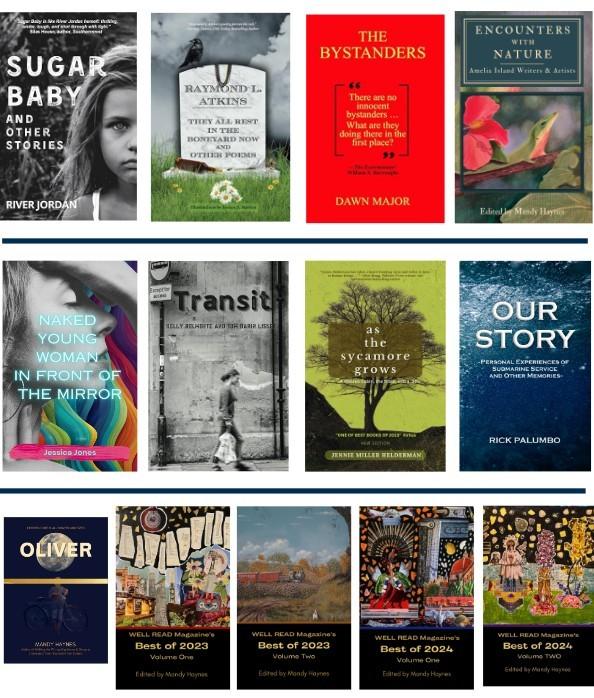





You come to the city because your passion called you here. Whatever that passion may be. That thing you love. And you wander out into the streets searching for a place to pull up a stool, order a drink, chat with the bartender about all things divine.
Welcome to God On The Rocks. Serving up great drinks and soulful conversations since time began.





I’m looking for Authors Interviewing Authors and would love to shine a spotlight on your favorite Independent Bookstores, Book Sellers, Libraries, and Librarians.
These pages are a great way to let readers know who you are and they are FREE.

“WELL READ provides a valuable service to authors. We recommend them highly!” Kimberly Davis, Madville Publishing
“Mandy offers a great artistic outlet and affordable advertising options for writers through WELL READ Magazine, ” Stephanie Edwards,Author
“Great pub for writers hoping to get found,” Bobby Horecka,
Author
“What she does for the literary community is “super-human.” Don’t know how she does it, but we are very grateful,” Mark Braught of MarkBraught Studios
“Mandy publishes an exceptional literary journal,” Phyllis Gobbell,Author
“Mandy Haynes and WELL READ Magazine are both fabulous (one is a person, the other her magazine), and tireless champions of sharing the best of creative writing,” Randi Samuelson-Brown
Author
“I recommend this magazine!” Lynn Hesse,Author
“Wonderful for storytellers and lovers of stories,” Michael Spake, Author
“Mandy
Haynes is a tireless advocate for written word, and one of the most able. Everyone should subscribe to Well Read Magazine, which she runs,”Amit Verma,Author
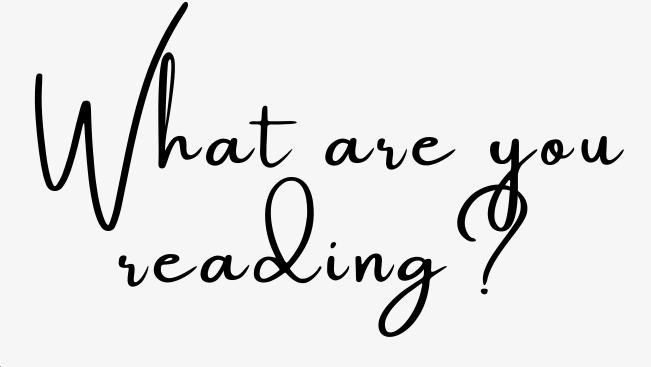


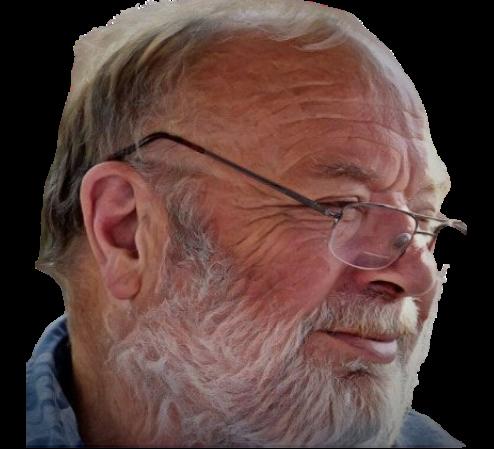
A monthly column that takes us off the page and into the
Crazy Talk
As a public service to you all and because Mandy told me to, and she can get fussy if I don’t do what she says, I am going to weigh in on the ugly subject of tariffs. If you already understand everything there is to know about these little suckers, then you are already smarter than the average politician, so please skip this and go back to whatever you were doing. But if you are in the dark and wondering what the hell is happening to what was once a perfectly healthy economy, read on. Oh, by the way, my qualifications for elaborating upon this complex phenomenon are impeccable: for 70 years I have been getting screwed by Big Government, Big Business, Big Medicine, Big Pharma, Big Insurance, Big This, and Big That, and while I was shelling out all those years I have kept careful notes on who got paid, who didn’t, and who was doing all the paying.
A tariff in its pure form is a market equalizer. It is a fee placed upon imported goods so that their final price to consumers will be similar to domestic competitors’prices. That’s all there is to it. Let me give you an example to help clarify the concept. Suppose I am the sole American manufacturer of, oh, say, golden toilets.
Business is good. I don’t sell too many of the things, because what kind of crazy person would buy a golden toilet, but when I do sell one, I can charge whatever I want, because I am the only game in town. So, I am rich, and life could not be more awesome. Then out of the blue, some foreign devil starts producing golden toilets much cheaper than I can and is cutting into my profits, which cuts into my ability to spend my golden toilet money as I wish to.
Oh man, I almost forgot one of the most important pieces of this puzzle. I make about 100 million dollars per year and pay almost no taxes. My golden toilet business also makes a healthy profit, but after utilizing all of the various loopholes provided to me by the government, I am able to show on paper that the enterprise loses money. My employees on average earn about $15 per hour, and they do just fine, bless their blue-collar hearts. If their spouses work as well and they don’t try to live beyond their means, have too many children, or get sick, they can have nice little lives.
Now back to the tariffs. In my hypothetical example I am being undersold, and my healthy slice of the American Dream is being put at risk just as the 2025 Lamborghinis are arriving at the dealership. I could, I suppose, cut my prices to try to compete while hoping that this is just a temporary problem that will eventually resolve itself. That is whatAdam Smith, dour Scotsman that he was, would have recommended. To help minimize the economic impact to my company, I could have a heartfelt meeting with my employees at which I would explain the need for belttightening while affirming that we must all be willing to make
sacrifices for the good of the team. Then I would cut their hourly wages by $2 and take away their health insurance. No, I would not cut my own wage; that’s just crazy talk.
Another thing I could try is to leave my prices as they are and try to meet the competitive threat by emphasizing intangibles such as quality and service, but unfortunately the quality of my golden toilets is marginal and my service sucks, so that’s out. I could diversify into golden sinks and golden showers, I guess, but one of those, at least, has connotations that I don’t believe my marketing department could sell around. Or I could pack up the whole shebang and move it overseas where my overhead would be much lower so that I, too, could make cheap golden toilets. Ironically, there used to be two golden toilet businesses in this country, but one of them did just that a few years back and is now trying to cut my throat, and that is my problem.
Anyway, I am going to do none of that, except maybe to go ahead and cut those hourly wages by $2 while I have the opportunity; I didn’t get to be the toilet king by being a nice guy. Instead, I am going to hire a lobbyist to go to Washington to plead my case. A lobbyist, for those of you who don’t know, is a person who bribes Senators and Representatives. I know it sounds sketchy, but I swear to you it is legal. My lobbyist will go to DC armed with golden toilets to gift to key Congressional personnel, because once they feel the kiss of rare metals on their nether regions, they will see the need to help me. My lobbyist will also be handing out travel junkets to exotic places so that some golden
toilet fact-finding can occur.Yes, I realize that when you and I need to find facts we just go to Wikipedia, but this is different; pay attention. In the meantime, I will journey to the swankiest of golf resorts and play a few rounds with extremely important people while casually mentioning my needs over Big Macs and Diet Cokes in the golf cart between holes. Of course, I will let the extremely important people win.
After all of this, tariffs will be imposed upon the foreign competitor, and the market will be equalized at the higher (my) price.The spin will be that this action is for the good of the country, and while that may not be true, it will surely be good for domestic golden toilet manufacturers, which is to say, me. The cost of all of this will be borne by whomever buys a golden toilet, so it is a win/win for me. Oh, and don’t worry about my hourly employees. They will be fine. Just fine. In a few years I will bump them back up to their original salaries, and they will be grateful for the raise. In the meantime, they can just eat out less, and if times get really tight, maybe they can have yard sales.


Mandy Haynes, Editor-in-Chief, Designer, Publisher, & Founder
Mandy Haynes is the author of two short story collections, Walking the Wrong Way Home, Sharp as a Serpent's Tooth Eva and Other Stories, and a novella, Oliver. Her stories have appeared in several anthologies and literary journals. She is the editor and designer of Encounters with Nature, a collaboration ofAmelia Island Writers and Artists, The WELL READ's Best of 2023 anthologies, and also the co-editor of The Best of the Shortest: A Southern Writers Reading Reunion.



Raymond L.Atkins, Contributing Editor for OFF THE PAGE
Raymond L. Atkins resides in Rome, Georgia, on the banks of the Etowah River in an old house with a patient wife and a lazy cat. His hobbies include people-watching, reading, and watching movies that have no hope of ever achieving credibility. His first novel, The Front Porch Prophet, was published in 2008 and was awarded the Georgia Author of the Year Award for First Novel. Camp Redemption, was awarded the Ferrol Sams Award for Fiction and the 2014 Georgia Author of the Year Award for Fiction. Sweetwater Blues was a Townsend Prize nominee, the 2015 GeorgiaAuthor of the Year runner-up for fiction, and the 2016 selection for One Book, Many Voices. South of the Etowah, his first creative non-fiction book, was released in 2016. It was nominated for a Push-cart Prize and was the 2016 GeorgiaAuthor of theYearAward runner-up for essay. In 2017, he was awarded the Lifetime Achievement Award by the Georgia Writers Association.


Robert Gwaltney, Contributing Editor for INSIDE VOICES
Robert Gwaltney, award winning author of southern fiction, is a graduate of Florida State University. He resides in Atlanta Georgia with his partner, where he is an active member of the Atlanta literary community. Robert’s work has appeared in such publications as The Signal Mountain Review and The Dead Mule School of Southern Literature. His debut novel, The Cicada Tree, won the Somerset Award for literary fiction. In 2023, Gwaltney was named Georgia Author of the Year for first novel.

Meet the staff


Ann Hite, Contributing Editor for MOUNTAIN MAGIC
In September of 2011 Gallery, an imprint of Simon & Schuster, published Ann Hite’s first novel, Ghost on Black Mountain. In 2012 this novel was shortlisted for the Townsend Prize, Georgia’s oldest literary award. In the same year, Ghost on Black Mountain won Hite Georgia Author of the Year. She went on to publish four more novels, a novella, memoir, and most recently Haints On Black Mountain: A Haunted Short Story Collection from Mercer University Press. In December 2022, Haints On Black Mountain was one of ten finalist for the Townsend Prize. The collection was a Bronze Winner in Foreword IndieAward 2023 and GeorgiaAuthor of the Year Second Place Winner for Short Stories 2023. Ann received a scholarship to the Appalachian Witers Workshop Hindman Settlement in the summer of 2020 and was invited back in 2021. Her passion for history influences all her work.


Jeffrey Dale Lofton, Contributing Editor for INSIDE VOICES
Jeffrey Dale Lofton hails from Warm Springs, Georgia. His years telling the stories of playwrights and scriptwriters as a stage and screen actor taught him the pull of a powerful story arc. Today, he is Senior Advisor at the Library of Congress, surrounded by books and people who love them. Red Clay Suzie is his debut novel, a fictionalized memoir written through his lens—gay and living with a disability—in a conservative family in the Deep South. It was longlisted for the 2023 Center for Fiction First Novel Prize and awarded the Seven Hills Literary Prize for Fiction, among other distinctions.

Dawn Major, Contributing Editor for TRIPLIT with D Major
Dawn Major’s debut novel, The Bystanders, was named finalist for 2024 GeorgiaAuthor of the Year for Best First Novel. Major is an associate editor at Southern Literary Review and advocates for southern authors via her blog, Southernread. Her literary awards include the following: the Dr. Robert Driscoll Award, Reinhardt University’s Faculty ChoiceAward, and the James Dickey Review Literary Fellowship. Major is a member of the William Gay Archive and has edited and helped publish the works of the late author. She serves on the board for Broadleaf Writers Association and is also a member of M’ville, anAtlanta-based artist salon. Major lives in the Old Fourth Ward inAtlanta, GA and is working on her next novel, The Dandy Chronicles.

Claire Hamner Matturro , Contributing Editor for CLAIRE CONSIDERS
Claire Hamner Matturro is a former attorney, former university writing instructor, avid reader, and the author of seven novels, including four published by HarperCollins. Her poetry appears in various journals including Slant and Lascaux Review. She is an associate editor ofThe Southern LiteraryReview and lives happily in Florida with her cross-eyed rescued black cat and her husband.



Annie McDonnell, Contributing Editor forANNIEASKS
Founder of The Write Review Literary Community, Podcaster, Book Reviewer, Author Consultant and Matchmaker. She also teaches workshops on top of all of this!Annie has been introducing us to books and authors since 2006, when she began reviewing books for Elle Magazine. Proud Stiff Person Syndrome Warrior, and several other illnesses.


Susan
Beckham Zurenda, Contributing Editor for THE WRITER’S
EYE
Susan Beckham Zurenda taught English for 33 years on the college level and at the high school level toAP students. She is author of the award-winning Southern literary novel, Bells for Eli, and the recipient of numerous awards for her short fiction, including the South Carolina Fiction Awards, twice. Her second novel, The Girl From the Red Rose Motel (Mercer University Press, September 2023), was the recipient of the 2024 Patricia Winn Award in Southern Fiction, Gold Medal winner in the 2024 IPPY Awards for Southeast Fiction, a 2024 Pushcart Prize nominee, a Shelf Unbound 2023 Notable 100 books, and a finalist in theAmerican Book FestAwards. Susan lives in Spartanburg, SC.
Tips appreciated!
If you enjoy this issue, please consider leaving a tip by using the QR code below or at @wellread on Venmo’s site.

Junebug Fischer by
Mandy Haynes
Junebug Fischer will be ninety-six come June. She's ready to set the record straight and let you know what really happened the summer she turned fifteen. It’s true, she killed someone, but she never killed nobody on purpose. That was purely accidental.
“I don’t know what caused me to shoot the arrow. I didn’t think about it. I just did it. Was it fear or was it pride?”
5.0 out of 5 stars One of the most compelling story/book writers in America.
“Outstanding book. Intelligent, and yet creative, in the best sense of the word. The story/book keeps you engaged right up until the final page. Great, great book!!!”
5.0 out of 5 stars Will leave you wanting more!
“Junebug Fischer is the kind of strong, feisty young lady hero we love, and Mandy's writing of her story draws you in from the start. You'll feel like you're sitting on that porch with her, and I guarantee you'll want more. Her characters come to life in all of her stories, and I recommend you read everything Mandy has written, and will write! You won't be disappointed.”
5.0 out of 5 stars A Southern Voice to Remember
“There's an echo of 'To Kill a Mockingbird' in the voice of the central character here, and I mean that as a high compliment. You'll like her after the first two sentences and root for her the rest of this short but powerful book. I don't want to give anything away. Buy it and read for yourself. 5 stars.”


